#King James 2000 Bible
Text

Here is My Chosen Servant
1 Behold my servant, whom I uphold; my elect, in whom my soul delights; I have put my spirit upon him: he shall bring forth justice to the Gentiles.
2 He shall not cry, nor lift up, nor cause his voice to be heard in the street.
3 A bruised reed shall he not break, and the smoking flax shall he not quench: he shall bring forth justice unto truth.
4 He shall not fail nor be discouraged, till he has established justice in the earth: and the coastlands shall wait for his law.
5 Thus says God the LORD, he that created the heavens, and stretched them out; he that spread forth the earth, and that which comes out of it; he that gives breath unto the people upon it, and spirit to them that walk in it:
6 I the LORD have called you in righteousness, and will hold your hand, and will keep you, and give you for a covenant to the people, for a light to the Gentiles;
7 To open the blind eyes, to bring out the prisoners from the prison, and them that sit in darkness out of the prison house.
8 I am the LORD: that is my name: and my glory will I not give to another, neither my praise to graven images.
9 Behold, the former things have come to pass, and new things do I declare: before they spring forth I tell you of them.
A New Song of Praise
10 Sing unto the LORD a new song, and his praise from the ends of the earth, you that go down to the sea, and all that is in it; the coastlands, and its inhabitants.
11 Let the wilderness and its cities lift up their voice, the villages that Kedar does inhabit: let the inhabitants of Sela sing, let them shout from the top of the mountains.
12 Let them give glory unto the LORD, and declare his praise in the coastlands.
13 The LORD shall go forth as a mighty man, he shall stir up jealousy like a man of war: he shall cry, yea, shout aloud; he shall prevail against his enemies.
14 I have long time held my peace; I have been still, and restrained myself: now will I cry like a travailing woman; I will destroy and devour at once.
15 I will lay waste the mountains and hills, and dry up all their vegetation; and I will turn the rivers into islands, and I will dry up the pools.
16 And I will bring the blind by a way that they knew not; I will lead them in paths that they have not known: I will make darkness light before them, and crooked things straight. These things will I do unto them, and not forsake them.
17 They shall be turned back, they shall be greatly ashamed, that trust in graven images, that say to the molten images, you are our gods.
Israel is Deaf and Blind
18 Hear, you deaf; and look, you blind, that you may see.
19 Who is blind, but my servant? or deaf, as my messenger whom I sent? who is blind as he who is perfect, and blind as the LORD'S servant?
20 Seeing many things, but you observe not; opening the ears, but he hears not.
21 The LORD is well pleased for his righteousness' sake; he will magnify the law, and make it honorable.
22 But this is a people robbed and plundered; they are all of them snared in holes, and they are hid in prison houses: they are for a prey, and none delivers; for a spoil, and none says, Restore.
23 Who among you will give ear to this? who will hearken and hear for the time to come?
24 Who gave Jacob for a spoil, and Israel to the robbers? did not the LORD, he against whom we have sinned? for they would not walk in his ways, neither were they obedient unto his law.
25 Therefore he has poured upon him the fury of his anger, and the strength of battle: and it has set him on fire all around, yet he knew not; and it burned him, yet he laid it not to heart.
— Isaiah 42 | King James 2000 Bible (KJB2K)
The King James 2000 Bible, copyright © Doctor of Theology Robert A. Couric 2000, 2003. All rights reserved.
Cross References: Genesis 49:10; Exodus 3:15; Exodus 15:3; 1 Samuel 6:5; Job 40:11; Psalm 50:21; Psalm 81:13; Psalm 97:7; Psalm 107:33; Psalm 138:2; Isaiah 5:29; Isaiah 12:5; Isaiah 29:18; Isaiah 41:23; Jeremiah 9:12; Matthew 3:16-17; Matthew 12:19-20; Matthew 13:13; Luke 1:78-79; Luke 2:32; John 9:7; Acts 17:24-25; Romans 2:21; Revelation 5:9
#chosen#servant#song of Praise#Israel#deaf#blind#Isaiah 42#Book of Isaiah#Old Testament#KJB2K#King James 2000 Bible
24 notes
·
View notes
Text
Catboy Crozier Asks Fitzjames to Poll Him
Secret Santa Gift for @sherwood-forests, a dear friend, a sublime writer, and haver of really good taste in sad old men <3

Pairing: Francis Crozier/James Fitzjames.
Rating: Teen and Up (I GUESS?).
Word Count: ~2000.
Tags: Character study in the style of catboy fic, James sees a furry and gets gender envy, I studied far too much Presbytarianism for this, Rated T because they're all dying of scurvy and The Madness.
Read it on Ao3 Here!
_________________________________
Something is wrong with the Captain, James is convinced.
Were it not for the passing sickness of thirst, Francis’s recovery might have seen him in a better spot, standing out on the deck, attempting to fill the late Sir John’s shoes with a sermon from the man’s pocket bible to mark the end of the workday.
The only issue is: even out here, on the pack, in the blistering wind, in recovery — Francis is in nowhere near the shape James had anticipated.
“- …And when he polled the hair of his head — for at the end of every year he used to poll it. It’d get so long that it’d become heavy and he’d cut it — he weighed the hair of his head. Two hundred shekels by the king’s weight.”
Somewhere in the back of the crew, there’s a whisper. “What’s a shekel?”
Another whisper: “Currency, daft bastard.”
Another, more recognisable considering he’d only heard the man speak minutes prior. Soft. Considerate. Goodsir. “It’s a measurement of weight.”
Jumping to maintain the pride of his superior, James casts a look in the direction of the whispering. It ceases, and silence coats The Terror once again.
“Then it’s just a whole lot of corn and kisses if I’m being honest.” Francis shuts the book, hard. Social confidence lost to the gale.
To the vast majority of the crew, the Captain’s discomfort might seem no more severe than usual. The vast majority of the crew don’t see the man behind closed doors. No one is quite so privy to the man’s personal suffering as the acquaintance James has reluctantly taken up. Harry has a certain talent for feeling it in the air beyond all his studies, but not even the medical staff see as much of the man as James.
He knows this man.
He knows something is wrong.
His skin, leathered from the open wind and the salt of sea spray does have a rosier glow than James had previously observed. Usually the hue is reserved for his nose; a blaring announcement of a secret badly hidden. Now? Pink dusts his cheeks like a newborn. Healthy, James might call it. Far more than what their diet lately would allow. On the topic of diet, Francis’s uniform sits less tailored than typically. Tight around the hips and thighs like a woman — or the closest imitation he’s seen of a woman since Lady Silence.
It stirs thoughts that go beyond concern, and although the mood on deck is remarkably dull, James breaks away to concentrate his gaze on the horizon, to something less scandalous. Dare he say, enviable.
There’s just no air of sickness about Crozier whatsoever.
Either he’s going out of his way to hide a wound, or Harry has been administering a means to control Francis’s pain.
“Erm…”
The Captain is a fish out of water standing before an audience, much less with a book in his hand. Sir John was at his most natural in this state by comparison; leading from the head, fuelling morale with passion and ambition and above all, devout Christianity. The hierarchy of it all stuck to him like varnish. Francis, meanwhile, offered none of this. Not to say that James hadn’t grown to respect Francis’s operation from within the crew, leading viscerally, escaping eye-contact by busying himself with his hands. Presumably Presbyterian. Clearly he’s never read a verse to anyone but himself. Clearly, he’s never spoken to such a large group of men who weren’t too busy to look upon him while they listened.
It’s painful. Enough to distract from the ache in his gums and the chill biting at his ungloved fingertips.
“What did Franklin do with these?” Francis asks, hitting a wall with the story he’s chosen. James leans down to his ear.
“He liked to draw daily lessons from his readings.”
“Yes. Alright. -…and let this be a reflection that Absalom might not have known the sailor’s — erm — aptitude for lice. So let’s remember our standards and remain… polled.”
James has been Francis’s Second long enough to know that he’s angling for a joke. No one laughs until he himself cracks an amused smile, habit drawing him onto his toes to weigh in.
“Perhaps if we should be beaten by the pack, we might earn ourselves a living in a few hundred pounds of hair.”
That gets a chuckle. Not because it’s funny; just because James is better-liked. From the way Francis’s shoulders sag, he’s not certain if it’s sadness at knowing this, or relief that he’s no longer being looked at.
“As you were. Warm meal awaits.” There’s a little half-wave from Francis. He’s turning tiredly, more than ready to make his escape. “First Officer Fitzjames. With me.”
— As if the other man wasn’t already striding two steps behind him, dipping his nose a tad to dodge the wooden stop overhead as they make their way to — and through — the lower deck. In the cramped corridor, the Captain’s wake envelopes his Second. It’s a new form of intoxicating, veering off and away from whatever deep spirits Francis can sneak away from the Erebus. A powdered scent carried on perfumed oils and polished silver, carrying him for a moment back to more distinguished moments in his career. There are no pleasant smells aboard the Franklin Expedition, James reminds himself. Must be a vapour off whatever Harry has snuck into the Captain’s system to have him so functional.
They enter the Captain’s cabin. Francis speeds up, as if he can’t find the bowels of his retreat quick enough. The man winces as he takes a seat, blinking through a pain sharp enough that James’s shoulders tighten at the sight alone.
He’s suffering far more than he’s been letting on.
It’s a humiliating affair, even carried out alone. What would otherwise have been a night of drink, reduced to observing his own mortality. The weight that he would have to distribute amongst his closest subordinates lest he bear an even more humiliating recovery should he not be able to swallow his own pride.
There’s a long look exchanged. James, expectant. Francis, not budging.
Ridiculous .
James is halfway to the door when Francis’s head inclines minutely. Conceding the minutest of defeats. Almost praying that such an action would go unseen. That his Second would simply leave without noticing. Not James. There’s nothing about Francis that can escape him. Initially such focus had been out of spite; then gradually, respect, before he’d found admiration to stoke.
He holds onto the spite. It keeps him sharp about the other man. Where blind appreciation led him to believe Sir John infallible, he knows how valuable a keen eye is when it comes to someone so familiar with obscurity.
It’s what has him shutting the door before he’s even opened it an inch. Turning on his heel to stand and watch expectantly.
Francis doesn’t meet his eye. Not right away. Not until James has made his annoyance clear enough in his expression for the other man to read.
“There is…something you deserve to know.”
James’s stomach drops, but he otherwise maintains an air of impatience. “Does Harry know?” They both know what kind of probe it is. Medical.
His response comes in a curt nod, and for it, James rejoins Francis at the table.
“You’re not wounded.” He probes again. “You’ve been recovering from your sickness well enough. If anything, you look healthier than you did at launch.”
“You spend a good deal of time watching me rather than your own crew.” Francis clips back at him. Good thing he didn’t mention the man’s hips, James reflects. Knuckles rap once, twice on the tabletop, and then: “…Sorry.”
“For God’s sake, Francis, just tell me what it is.”
The Captain glares into the middle distance for a long moment. Then he glares at James for just as long. He reaches back, up beneath the underside of his uniform, wincing as he tugs something from his undershirt that doesn’t make itself immediately known. Not until Francis’s attention moves to his cap, gingerly lifting it from his head.
Ears.
Not human. Feline. Rooted amongst the mess of flattened, thinning hair.
James can only gawk while the man places his hat on the table, lining it up neatly beside the discarded scissors. An apparent tail flicks in impatience.
A tail.
The Captain has a tail.
“Well say something , James!”
The First Officer stammers — a rare event — before finding his words. “Are those yours?”
“Are they mine? What — are they mine? Use your eyes! Evidently so! They’re bloody well fused to me.”
He takes a tentative step forward. Then, finding his knees a little wobbly, James slumps into the seat adjoining the other man. “And — erm — Harry knows about… this.” He gestures vaguely at the rather regal tail touching the floorboards between them.
“You know he’s that dreadful curious sort. ‘Remarkable’ , he called it.” Francis replies, disdained.
That doesn’t sit well on the palette. No one called Francis Crozier: an Irish, stubborn, drunkard remarkable. Not at least until James was forced to fill Sir John’s role by his side and get to know the man, for God’s sake. Not that he’s verbalised the opinion.
It’s just —
It’s envy .
Harry’s already well-liked just for being agreeable with the man. He’s soft in a fairytale Good British Men sort of way. Why does he get to call the Captain remarkable when the term would mean so little coming from someone in already such high esteem?
“Fitzjames.” Francis pulls him out of his thoughts, inclining his head just slightly; just enough that James can make out a little scabbed nick at the base of one of those remarkable ears. “I need you to get rid of them.”
James’s gaze is pulled down to the scissors. They weren’t discarded. They were laid out for him. “You want me to-…”
“I’m too much a coward to do it myself, James. I’ve tried it. I’m asking you — do this for me. Get rid of the damn things.” Francis insists, nearing desperation. Then, with a touch of awkwardness — perhaps an attempt to make light of his situation: “Poll me.”
The chuckle James offers is absent of amusement. “Sir John would be delighted to hear you use one of the daily lessons according to his habits.”
Francis’s fuzzy ears angle lower, marking just how unimpressed he is with such a statement.
It’s rather endearing.
It is envy, he’s sure. No revulsion or vicious amusement or anything of the sort. He wants to feel that way, for his own sake and for the sake of the man he’d far prefer to feel only disdain for. Yet, it only manifests in the sort of concern one reserves for adored schoolmates, and in envy. The thought nags at the back of his mind: what if this is contagious in its benefits? What use would there be in vanquishing such a turn?
Moments pass. The scissors, though offered, go untouched.
“I’d call this insubordination.” Francis ventures to threaten.
“No, it’s madness.” James retorts. “I’m not going to carve into you. Far worse has occurred and you’ve managed to hide it-“
“How in God’s name!” Francis snaps, “Can this be hidden?”
It might have been mistaken for an outburst. A firm hand toward a lesser officer. No, Francis is far more frightening when he’s sincerely angry. This is a tantrum, and James has learned to parent it.
“What I mean is, perhaps you might consider waiting. From the sounds of it, the affliction hasn’t spread. Whatever condition this is, there may be more benefits to come.” He pauses to consider the risk of his next words. “How is your thirst?”
“I’ve not had any taste for it. The illness all but left me when this change came about.”
“Any other aversions?”
“Not yet seen.”
“That’s alright. Nothing a layer of cheese won’t help.”
“You’re not funny in the slightest.”
James would disagree, but the Captain looks so forlorn about this whole debacle that he deems it wiser just to keep to himself this time. “I’ll bring you something from the kitchen,” He offers, turning to depart, “and allow you to stew, in lieu of marinating.”
“You’re not funny.”
Francis rises from his seat to acknowledge such a departure. He does not, however, say anything. Not until James has reached the door.
“Broth sounds nice.”
“And what about a saucer?” James jests.
He is met with a scowl. Francis’s knuckles rap on the table. His lovely tail whips in irritation — or perhaps thought.
His Captain leans forward, fixed on him beneath a heavy, knitted brow.
“You will tell no one of this.”
“Saucer it is.”
#amc terror fanfic#james fitzjames#francis crozier#when i tell you i found myself multiple times reflecting on themes while on some conspiracy forum........#anyway thank you Sher for the excuse to write this in particular#catboys at sea!
4 notes
·
View notes
Photo
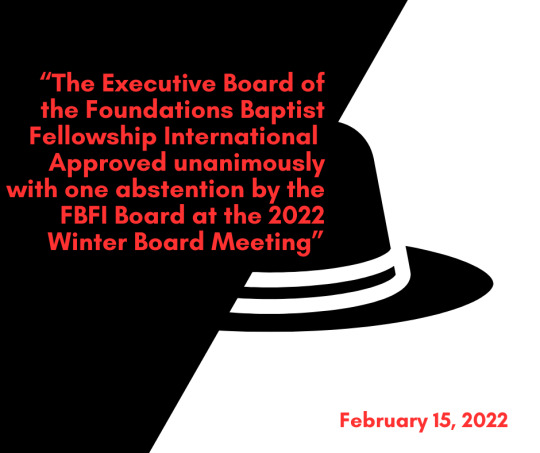
When the +++Positives+++ released this letter in January 2023, they blacked out all of the signatories but one:
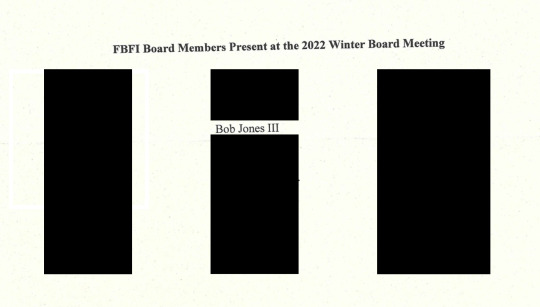
The full signature line was:
Sincerely,
The Executive Board of the Foundations Baptist Fellowship International
Approved unanimously with one abstention by the FBFI Board at the 2022 Winter Board Meeting
So yes, Bob Jones III was writing to his own legacy institution to “being to make corrections.”
WutBJU doesn’t know who was present at this Winter Board Meeting of the FBFI outside of Bob Jones III.
But here’s the current slate of officers of the FBFI:
Dr. Kevin Schaal
President/CEO
Northwest Valley Baptist Church
4030 W Yorkshire Drive
Glendale, AZ 85308
Phone: 864.268.0777
Dr. Gordon Dickson
Chairman
Calvary Baptist Church
2000 Broad Ave
Findlay, OH 45840
Phone: 419.422.6842
Pastor Taigen Joos
Vice Chairman
Heritage Baptist Church
8186 Dover Point Road
Dover, NH 03820
Phone: 603.749.0762
Dr. Bud Steadman
Secretary
Baptist World Mission
PO Box 2149
Decatur, AL 35602-2149
Phone: 256.353.2221
Pastor Michael Privett
Treasurer
Summit View Baptist Church
31 N Highway 25 Bypass
Travelers Rest, SC 29617
Phone: 757.206.9544
And the Executive Board:
Dr. Ron Allen
Bible Baptist Church
2724 Margaret Wallace Road
Matthews, NC 28105
704.535.1692
Rev. Mike Ascher
Good News Baptist Church
3252 Taylor Road
Chesapeake, VA 23321
757.488.3241
Dr. James Baker
Tabernacle Baptist Church
717 N. Whitehurst Landing Road
Virginia Beach, VA 23464
757.424.4673
Rev. Earl Barnett
King Cove Bible Chapel
PO Box 45
King Cove, AK 99612
(907) 497-2076
(907) 414-1402 Cell
Dr. David Byford
Faith Baptist Church
7023 Deer Trail Road
Manhattan KS 66503
785.539.3363
Dr. Robert Condict
Upper Cross Roads Baptist Church
2717 Greene Road
Baldwin MD 21013
410.557.7427
Rev. Jeff Davis
EMU International
325 Regency Circle
Anderson, SC 29625
864.617.7156
Mr. Roger Duvall
22 Elmwood Drive
Taylors, SC 29687
864.420.0892
Dr. Ken Endean
Tri-City Baptist Church
2211 W Germann Road
Chandler, AZ 85286
480.245.7969
Pastor Tony Facenda
Stillwaters Baptist Church
Milepost 4 1/2 US 158
Nags Head, NC 27959
(252) 255-1835
CH (COL) Gary Fisher
2634 Wisser Street
Honolulu, HI 98619
785.492.7667
Pastor Terry Hamilton
Friendship Baptist Church
700 Boyson Rd NE
Cedar Rapids, IA 52402
319.393.6990
Dr. Mike Harding
First Baptist Church of Troy
2601 John R
Troy MI 48084
810.689.4555
Dr. Craig Hartman
Shalom Ministries Inc
2152 Ralph Avenue #601
Brooklyn NY 11234
718.232.8233
Dr. Dale Heffernan
Midland Baptist Church
1860 North Tyler Road
Wichita, KS 67212
316.721.1860
Rev. Arin Hess
7210 Orchard Street
Lincoln, NE 68505
402.750.0555
Dr. David Innes
Hamilton Square Baptist Church
1212 Geary St.
San Francisco CA 94109
415.673.8586
Rev. Don Johnson
Grace Baptist Church
2731 Matson Road
Victoria, BC
CANADA V9B 4M5
Dr. Stephen Jones
Bob Jones University
1700 Wade Hampton Blvd
Greenville, SC 29614
Dr. Larry Karsies
Harvest Hills Baptist Church
9713 North County Line Road
Yukon, OK 73099
405.721.1920
Dr. Mark Minnick
Mt. Calvary Baptist Church
115 Cedar Lane Road
Greenville SC 29601
864.233.1684
Rev. Jeff Musgrave
The Exchange
10100 Glenayre Court
Parker, CO 80134
303.798.1204
Dr. Larry Oats
Maranatha Baptist University
745 West Main Street
Watertown WI 53094
920.206.2324
Dr. David Pennington
Penn Coaching & Consulting
2018 Freeport Drive
Indian Trail, NC 28079
317.507.6001
Dr. Chuck Phelps
Colonial Hills Baptist Church
8140 Union Chapel Road
Indianapolis, IN 46240
317.253.5597
Dr. Kent Ramler
People’s Baptist Church
6648 Carpenter Road
Frederick, MD 21703
301.473.5635
Dr. C. Matthew Recker
Heritage Baptist Church
PO Box 7925
New York NY 10016
212.947-5316
Rev. Stephen Russell
Central Baptist Church
1812 Honeysuckle Road
Dothan AL 36305-4224
334.794.9214
Dr. Dale Seaman
Calvary Baptist Church
1768 N Newcomb Street
Porterville, CA 93257
559.783.0857
Dr. Will Senn
Tri-City Baptist Church
6953 W 92nd Lane
Westminster, CO 80021-4074
303.424.2287
Rev. Ron Smith Jr
Victory Baptist Church/AFBM
PO Box 2462
California City CA 93504
760.373.7314
Rev. Jeremy Sweatt
Farmington Avenue Baptist Church
149 Mountain Rd
West Hartford CT 06107
860.521.8380
Rev. Dan Unruh
Westside Baptist Church
6260 West 4th Street
Greeley CO 80634
970.346.8610
Dr. John C. Vaughn
109 Saffron Way
Taylors SC 29687
864.325.2531
CH (COL) Joe Willis USAR RET
2021 Bradbury Rd
Adams TN 37010
813.767.2734
Pastor Doug Wright
Keystone Baptist Church
15 Keystone Lane
Berryville, VA 22611
540.955.3410
Dr. Mike Yarborough
Faith Baptist Church
1445 Fertilizer Road
Riegelwood, NC 28456
919.622.5309
Dr. Wayne Van Gelderen Jr.
Falls Baptist Church
N69 W12703 Appleton Avenue
Menomonee Falls WI 53051
414.251.7051
And then the board members they keep around on an “Advisory Board”:
Rev. Mark Brock
Crossway Baptist Church
4600 Ashe Rd. #318
Bakersfield, CA 93313
661.900.2578
Dr. Ron Ehmann
Northwest Baptist Missions
PO Box 548
Toole, UT 84074
Mr. Mark Herbster
Maranatha Baptist University
745 West Main Street
Watertown, WI 53094
Dr. Marty Herron
Harvest Baptist Church
PO Box 23189
Barrigada, GU 96921
Dr. Jeff Kahl
W10085 Pike Plains Road
Dunbar, WI 54119
704.989.8517
Dr. Greg Kaminski
Westside Baptist Church
1375 Irving Road
Eugene, OR 07404
CDR Tavis Long, CHC, USN
1820 Sunsprite Loop
Chesapeake, VA 23323
662.812.5288
Ch. Maj. Nathan Mestler
International Baptist College
2211 W Germann Rd
Chandler, Arizona 85286
Rev. Dan Pelletier
Hamilton Square Baptist Church
1212 Geary Blvd.
San Francisco, CA 94109
CH (COL) Michael Shellman
206 South Courthouse Road
Arlington, VA 22204
910.309.6776
Board Emeritus
Dr. Rick Arrowood
104 Rambling Creek Cv
Byron, GA 31008-9584
317.217.1600
Dr. Charles Britt Sr.
3979 Kristen Street
Spring Hill TN 37174
931.489.9248
Dr. Gerald Carlson
53 Gideon Road
Sebring, FL 33870
252.452.1112
Dr. Edward Caughill
206 Cooleys Crest Lane
Inman SC 29349
757.479.1195
Dr. Walter Coles
Good News Baptist Church
3252 Taylor Road
Chesapeake VA 23321
757.488.3241
Dr. Johnny Daniels
Calvary Baptist Tabernacle
PO Box 3390
Carolina, PR 00984
787.750.2227
Dr. Bill Hall
75 Wintergreen Ave
Greeneville TN 37745
423.638.8087
Dr. Bruce Hamilton
Hamilton Acres Baptist Church
138 Farewell Avenue
Fairbanks AK 99701
907.456.5995
Dr. Bob Jones III
Bob Jones University
419 Library Drive
Greenville SC 29609
864.242.5100
Dr. Peter Maruyama
Narashino Baptist Church
4-17-10, Moto-Ohkubo
Narashino, Chiba 275-0012
JAPAN
011.047.477.8910
Mr. Mike Moreau
Harvest Media, Inc
22 Briarwood Court
Schaumburg IL 60193
847.352.4345
Dr. Fred Moritz
149 Marsh Creek Drive
Garner, NC 27529
(256) 318-0897
Dr. Les Ollila
PO Box 40
Pembine, WI 54156
715.324.6900
Rev. Wilbur W. Schoneweis
Emmanuel Independent Baptist Church
411 Blunt Street
Clay Center KS 67432
785.632.5939
Dr. Robert Taylor
Colonial Hills Baptist Church
8140 Union Chapel Road
Indianapolis IN 46240
317.253.5597
Dr. George Youstra
1984 Georgia Circle
Clearwater FL 33760
727.538.1920
I’ve bolded those names who are either current or former members of the BJU Board of Trustees. UPDATE: I eliminated this indication after receiving all the names who signed.
The men present who voted unanimously were either all of those or some of those. We don’t know. We can presume that the Officers were all likely present: Kevin Schaal, Gordan Dickson, Taigen Joos, Bud Steadman, and Michael Privett.
Who abstained? Bob III didn’t. Mike Harding as a present BJU Board member? Stephen Jones as a very absent member of the Royal family? Mark Minnick as a current employee?
The only name on there that I can guarantee did not abstain was Don Johnson, but he’s an old friend of mine. ;)
What do you think?
UPDATE, May 15, 2023:
The Positives have added an unredacted signatory list. WutBJU will mark all those signatories on the above list in bold italics.
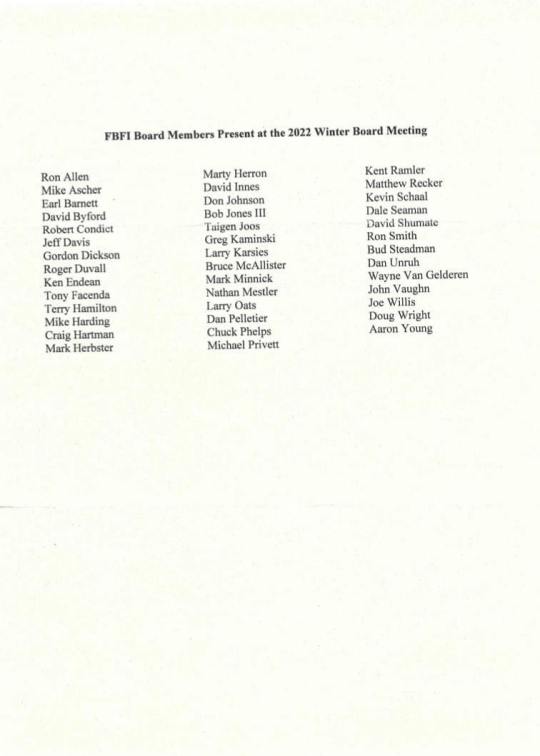
#Bob Jones University#BJU Board of Trustees#John Lewis#Bob Jones III#PBJU#Steve Pettit#FBFI#Make Pettit Prez Again#Make BJU Great Again#Stephen Jones#Mike Harding#Kevin Schall#Bud Steadman#Kevin Schaal#Michael Privett#Mark Minnick#Don Johnson
2 notes
·
View notes
Text
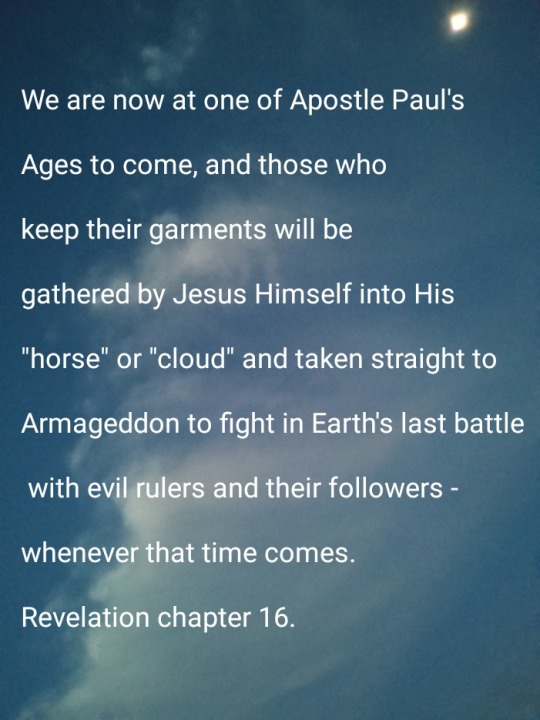

Scripture for the Day:
The Revelation 1:1-3 and verse 19
“THE REVELATION OF JESUS CHRIST, which GOD GAVE unto him, TO SHOW UNTO HIS SERVANTS things which must SHORTLY COME TO PASS (2000 YEARS AGO); and he sent and signified it by his angel unto his servant John: Who bare record of the word of God, and of the testimony of Jesus Christ, and of all things that he saw. Blessed is he that readeth, and they that hear the words of this prophecy, and keep those things which are written therein: FOR THE TIME IS AT HAND… Write:
1) the things which YOU HAVE SEEN (chapters 1-5)
2) the things WHICH ARE, (Chapters 1-14)
3) the things WHICH SHALL BE HEREAFTER." (chapters 20 and 22, for the Israelites and the First Dominion; then 15-19 and 21 for the Age of the Gentiles)
The King James Bible and other translations were written after Mystery Babylon had killed off all the philosophers, scientists, astronomers and Bible scholars who held to their knowledge of ancient technologies and of the First Dominion of the Messiah; or ministers who refused to accept their doctrines. Mystery Babylon switched chapters around to their liking; even leaving out Books that were the "Word of the Lord" which tried Joseph in his trials and instructions for becoming Ruler of Egypt [Psalm 105:19].
‘Two thousand years’ has passed since the Revelation of Jesus Christ to those who pierced Him! But He is still the same Living, Loving Saviour - yesterday, today, and forever, and no one comes into a loving relationship with the Father, except through the blood of Jesus/Yhswh the Lamb of God that takes away the sins of the world.
Let us wake up and hop out of the box of unequivocal theories regarding Eschatology, or Ends of Earth's Ages. This scripture was written to people living in the Last Days of the Age of the Israelite and came to pass shortly thereafter, and we are now living in one of Apostle Paul's Ages-to-come--the Last Days of the Age of the Gentiles. AlleluJAH!
#Eschatology#Last Days#Mystery Babylon#The Revelation of Jesus Christ#Unequivocal Theories#Scripture
0 notes
Text
Christmas story


Christmas Story
Christmas story, customs and traditions in Great Britain, Ireland, and London by English-culture blog plus other links to our posts on Christmas festival.
In the old days, it was not called the Holiday Season; the Christians called it 'Christmas' and went to church; the Jews called it 'Hanukkah' and went to synagogue; the atheists went to parties and drank. People passing each other on the street would say 'Merry Christmas!' or 'Happy Hanukkah!' or (to the atheists) 'Look out for the wall!'.
Dave Barry
Happy, happy Christmas, that can win us back to the delusions of our childish days; that can recall to the old man the pleasures of his youth; that can transport the sailor and the traveller, thousands of miles away, back to his own fire-side and his quiet home!
Charles Dickens
Were I a philosopher, I should write a philosophy of toys, showing that nothing else in life need to be taken seriously, and that Christmas Day in the company of children is one of the few occasions on which men become entirely alive.
Robert Lynd
The name Christ itself was borrowed into Old English from Latin Christus, which in turn came from Greek Khristós. This meant literally ‘anointed’, and came from the verb khríein ‘anoint’. It was a direct translation of Hebrew meshiah (source of English messiah), which also meant literally ‘anointed’.
Christian is derived, of course, from the name of Christ. It is a surprisingly recent word, having been introduced in the 16th century from Latin Christianus, replacing the existing English adjective christen, which came from Old English cristen. The latter was the basis of the Old English verb cristnian, from which we get modern English christen.
Christmas" is a shortened form of "Christ's mass". It is derived from the Middle English Cristemasse, which is from Old English Cristesmæsse, a phrase first recorded in 1038 followed by the word Cristes-messe in 1131. Crist (genitive Cristes) is from Greek Khristos, a translation of Hebrew "Messiah", meaning "anointed"; and mæsse is from Latin missa, the celebration of the Eucharist.
Christmas: "Church festival observed annually in memory of the birth of Christ," late Old English Cristes mæsse, from Christ (and retaining the original vowel sound) + mass. Written as one word from mid-14c. As a verb, "to celebrate Christmas," from 1590s. Father Christmas first attested in a carol attributed to Richard Smart, Rector of Plymtree (Devon) from 1435-77. Christmas-tree in modern sense first attested 1835 in American English, from German Weihnachtsbaum. Christmas cards were first designed 1843, popular by 1860s; the phrase Christmas-card was in use by 1850. Christmas-present is from 1769. Christmas Eve is Middle English Cristenmesse Even (c. 1300).
The Christmas Story in a Nutshell Jesus in Manger. Wise men bring first Christmas gifts
It all started with the Angel Gabriel just over 2000 years ago. The Angel Gabriel proclaimed that Mary would have a very special baby and that the newborn would called Jesus.
If we move forward to Bethlehem, Mary and her husband Joseph, went to town to pay their taxes. Unfortunately, there was nowhere for them to stay, so they took shelter in a stable. There in Bethlehem, in a manger, the baby Jesus was born.
A bright star in the East guided wise men to the stable. They brought with them gifts Gold, Frankincense and Myrrh. This informal ceremony has extended to the celebration of Christmas as we know it today.

Christmas story and traditions
The Christmas Story - The Version from the King James Bible. Matthew Chapter 2. Jesus in Manger. Wise men bring first Christmas gifts
1. Now when Jesus was born in Bethlehem of Judaea in the days of Herod the king, behold, there came wise men from the east to Jerusalem,
2. Saying, Where is he that is born King of the Jews? for we have seen his star in the east, and are come to worship him.
3. When Herod the king had heard these things, he was troubled, and all Jerusalem with him.
4. And when he had gathered all the chief priests and scribes of the people together, he demanded of them where Christ should be born.
5. And they said unto him, In Bethlehem of Judaea: for thus it is written by the prophet,
6. And thou Bethlehem, in the land of Juda, art not the least among the princes of Juda: for out of thee shall come a Governor, that shall rule my people Israel.
7. Then Herod, when he had privily called the wise men, enquired of them diligently what time the star appeared.
8. And he sent them to Bethlehem, and said, Go and search diligently for the young child; and when ye have found him, bring me word again, that I may come and worship him also
9. When they had heard the king, they departed; and, lo, the star, which they saw in the east, went before them, till it came and stood over where the young child was.
10. When they saw the star, they rejoiced with exceeding great joy.
11. And when they were come into the house, they saw the young child with Mary his mother, and fell down, and worshipped him: and when they had opened their treasures, they presented unto him gifts; gold, and frankincense and myrrh. 12. And being warned of God in a dream that they should not return to Herod, they departed into their own country another way.
SAINT NICHOLAS (Santa Claus) ON CHRISTMAS EVE (December 24th)
He comes to visit every child on the night before Christmas. The children hang stockings on the end of their beds and Santa Claus (or Father Christmas, as he is often called) fills them with toys. Santa comes from Greenland in a sleigh pulled by reindeer, he lands on the roofs of houses and comes down the chimney to bring presents for the children. The children write letters to Santa Claus a few weeks before Christmas and leave them in the fireplace.
In Britain December 31st is called New Year's Eve and January 1st, which is a public holiday, is New Year's Day. The Scots have another name for the New Year holiday, it is called Hogmanay- and in Scotland it is the most important holiday in the year. Friends and relations meet and have parties to see the new Year in. They eat and drink and sometimes dance and sing. At midnight they have a drink and wish each other "A happy new year". In Scotland, and in many parts of England, people visit their friends after midnight, this is called "first-footing". If your first visitor after twelve o'clock is a tall, dark man with a piece of coal and sometimes a herring in his hand, you will be lucky for the whole year! The day after Christmas is called Boxing Day and January 6th is called Twelth Night.
CHRISTMAS DAY December 25th
It is 1.30 on Christmas Day and the Browns are eating their Christmas dinner. Mrs Brown's father is carving the turkey and Mrs Brown is serving ...
Mrs Brown: I hope the turkey's cooked properly, Father.
Father: It looks fine to me.
Mrs Brown: Will you have ham and sausages with your turkey, Barbara?
Barbara: Yes, please, Mum. Mrs Brown: And bread sauce?
Barbara: Yes.
Mrs Brown: And chestnut stuffing?
Barbara: Oh yes - I'll have everything.
Mrs Brown: Here you are then.
Barbara: It looks delicious. Pass the gravy, please, David.
Mrs Brown: Don't wait for us, Barbara. Start yours or it'll get cold. Now, David, what'll you have? ...
And after the main course the Browns had Christmas pudding with brandy butter, mince pies with cream followed by nuts and fruit and coffee. Then they all pulled crackers. Inside each cracker there was a coloured paper hat, a joke and a small toy - a whistle or a doll perhaps.
(A Christmas cracker is a cardboard, very thick paper that is used for making boxes, tube covered in coloured paper and containing a small present. Crackers are pulled apart by two people, each holding one end, at Christmas parties. They make a loud noise as they break.
After such a large meal - and a lot of washing up - they all settled down to watch the Queen on television. In the evening they went carol singing with the church choir and visited an old people's home. This is one of the Carols they sang.
I saw three ships come sailing in on Christmas Day, on Christmas Day. I saw three ships come sailing in on Christmas Day in the morning.
And what was in those ships all three, on Christmas Day, on Christmas Day? And what was in those ships all three, on Christmas Day in the morning?
Our Saviour Christ and His lady, on Christmas Day, on Christmas Day; Our Saviour Christ and His lady, on Christmas Day in the morning.
BOXING DAY December 26th
It's the day after Christmas - a Bank holiday - and David is sitting in the stalls of the Palladium Theatre with his Aunt Kate and his little cousin, Emma. They are watching the pantomime, Babes in the Wood. It's the first time Emma's been to a pantomime and so she's asking a lot of questions.
Emma: Why's that man dressed as a woman, Mummy?
Aunt Kate: It's just funnier that way. There's always a man like that - usually he's somebody famous - that's Arthur Askey and he's pretending to be the children's mother.
Emma: He's rather ugly, isn't he? ... And why are there two men inside that horse? Can't they get a real one?
David: Well, it would be a bit difficult to have a real horse on the stage - it might get frightened by all the noise.
Emma: Why did the man leave the children in the wood?
Aunt Kate: What a lot of questions you ask! Now, shh! Watch. Arthur Askey's going to take the children to Robin Hood in Sherwood Forest ...
Customs, story and traditions
St Nicholas was the bishop of the Italian town Bari. He was a very good and generous man. He died in December and parents started giving gifts' to their children on the anniversary of his death, in order to remind them of the saint's generosity. At the end of the Roman Era and during the Middle Ages, Europe was far more united than we can imagine: pilgrims' travelled to sanctuaries, scholars' went from one university to another - and so St Nicholas, or Nicolaus , became known all over Europe. And in northern Europe Santa Claus, who brings gifts during the Christmas period, is still St Nicholas from Bari with his new northern name.

Indoor Christmas decorations
Yet, in the original Celtic tradition there were two other people who brought gifts during winter. Of course you know them. One is the Italian Befana, who is a good witch on her way back from the witches' Sabbath. The others were the tiny' gnomes from northern Europe, who lived in old trees in the forests. They also wore a big red hood'. A little girl who spoke to wolves' and walked in the forest wearing a red hood and carrying gifts is no doubt known to you: Little Red Riding Hood.
All over Britain, around Christmas time, children are taken out for a special treat - a pantomime or a circus. A pantomime is a kind of comedy play with singing and dancing, based on a well-known fairy story or folk-tale such as Aladdin, Cinderella or Babes in the Wood. Sometimes one story is mixed with another. The Babes in the Wood that Emma saw took place in Sherwood Forest and Robin Hood had to save the children from the Sheriff of Nottingham.
Pantomimes have certain traditions. There is usually a 'Principal Boy' or hero, who is actually a woman dressed in men's clothes - except that 'he' doesn't wear trousers, but stockings and high heels instead! There is a “Dame” - an old woman acted by a man dressed in women's clothes. There is always a villain (a man or a woman who tries to harm the hero) and often there is a comic animal played by one or two men.
The audience is often asked to join in It sings popular songs, it hisses or boos t e villain, and it tries to warn the hero or the Dame when something bad is going to happen. However, all pantomimes have a happy ending - usually a beautiful and romantic wedding scene.
Why is December 26th called “Boxing” Day? In the old days, servants, shopkeepers and other people who performed a service for the rich used to come to their houses with a box and be given presents and sometimes money. The custom still continues in a way, but only with people who deliver things or take them away - like milkmen, postmen, newsmen, newspaper boys and dustmen.
Christmas Meals in the United Kingdom & Ireland. What is now regarded as the traditional meal consists of roast turkey, served with roast potatoes and parsnips and other vegetables, followed by Christmas pudding, a heavy steamed pudding made with dried fruit, suet, and very little flour. Other roast meats may be served, and in the nineteenth century the traditional roast was goose. The same carries over to Ireland with some variations.

London streets Christmas lights decorations
From glittering Christmas lights and ice skating to traditional markets and Christmas shows, London is a Christmas wonderland. After a festive meal, where better to burn off energy gliding around the Christmas tree at the Natural History Museum’s magical ice rink. London has plenty of other rinks to pirouette upon, including Skylight’s rooftop rink, with impressive city views, or cutting your crystal in the rink of the Tower of London, outside the Queen’s jewels. London rinks sell hot chocolate to warm hands and cockles after whizzing around the ice.
You can see the beautiful Oxford Street Christmas lights shimmer in the skies above the world-famous shopping district and check out one of the quirkiest London Christmas lights displays, glowing across the 13 streets of cool Carnaby. Admire the gorgeous mistletoe chandeliers at Covent Garden, and explore the magical Christmas lights in nearby Seven Dials. See the luxurious area of Bond Street sparkle with magnificent Christmas lights or marvel at more than 300,000 Christmas lights and 16 glowing spirits glittering above Regent Street.
You can also sing along to carols around Trafalgar Square’s world-famous Christmas tree and support your favourite furry friends at the Battersea Cats and Dogs Home Carol Concert. You may also be part of traditional Christmas carols at the historic St Paul’s Cathedral. Or join in with carols by candlelight at the Royal Albert Hall and enjoy carols and concerts at St Martin-in-the-Fields Church.
Christmas is the celebration of the birth of Jesus. The word nativity comes from the latin word 'natal' which means birth (and is also where we get the word 'native' from). It is traditional in the UK for Primary (Elementary) schools to perform Nativity Play for the parents and local people associated with the school. The Nativity Play recreates the scene of Jesus' Birth and tells of how Mary and Joseph were visited by the Shepherds and Wise Men. The parts of Mary, Joseph, the Shepherds and the Wise Men are played by children. If the school is attached to a Church, the play often takes place in the Church. Sunday Schools in Churches also sometimes put on Nativity Plays.
In the past, it was common for live animals including an ox and donkey and other farm animals (but not pigs) to be used in the plays. Sometimes they still are, but it is now more common for children to dress up as the animals in costumes or to have animal props. The first Nativity Play was not performed by Children in the UK, but in a cave by Monks in Italy! St. Francis of Assisi and his followers acted in the first play in 1223 to remind the local population that Jesus was born for them, as he was born into a poor family like theirs and not to a rich family.
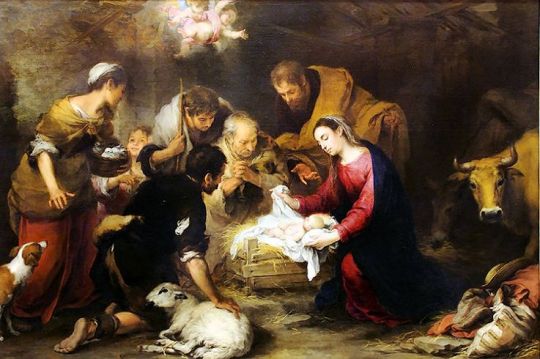
Christmas is the celebration of the birth of Jesus.
St. Francis told the part of each character in the story himself using wooden figures in the play. After a couple of years, the play had become so popular that real people played the parts of the characters in the story. Songs were sung by the people taking part and they became what we call Christmas carols today!
Now cribs are used in Churches all over the world and even in some homes (we have a wooden one in my house) to remind people of the story. Sometimes religious pictures and statues are called icons. Some Catholic and Orthodox Christians have icons of Mary and the baby Jesus in their homes. In some countries such as Italy and Malta, and many South American countries, the crib is the most important Christmas decoration. The city of Naples, in Italy, has used cribs to decorate houses and Churches since the 1020s! That's even before St. Francis of Assisi put on his play. Naples is also the home to the world's largest nativity crib scene. It's in the 'Museo Nazionale di S. Martino' and has 162 people, 80 animals, angels, and about 450 other smaller objects. Find out more about Nativity cribs in Naples in Italy.
Nativity Scenes called 'Pessebres' are popular in the Catalonia region of Spain. Cribs also have a long tradition and importance in Malta, where they are called 'Presepju'. There's a special society that keep the tradition alive. Find out more about Nativity cribs in Malta.
And now enjoy some proverbsw on Christmas:
Christmas comes, but once a year is enough.
Proverb, (American)
Christmas has been talked of so long that it has come at last.
Proverb, (French)
A green Christmas makes a fat churchyard.
Proverb, (Danish)
A turkey never voted for an early Christmas.
Proverb, (Irish)
After Christmas comes Lent.
Proverb, (German)
Another year will bring another Christmas.
Proverb, (Danish)
If the ice will bear a maman before Christmas, it will not bear a goose after.
Proverb
It is good to be priest at Easter, child in Lent, peasant at Christmas, and foal in harvest-time.
Proverb, (Danish)
Green Christmas, a white Easter.
Proverb, (German)
The devil makes his Christmas pies of lawyers' tongues and clerk's fingers.
Proverb
http://www.youtube.com/watch?v=0Ze2h6pdR54
http://www.youtube.com/watch?v=PYyZKUFPCMo
Read also our other posts on Christmas
Read the full article
#Angel#anointed#Bethlehem#boxing#carols#children#Christ#Christmas#customs#Eucharist#Gabriel#happy#Jesus#Joseph#London#Mary#mass#OldEnglish#SantaClaus#Traditions
0 notes
Text
Recognizing and Responding To The Adversary of the Abrahamic Faiths and All of The Adversary's Servants, Slaves, and Allies. Part 7/13.
The beast and the kings of the earth are already captured, trapped, disarmed, and completely helpless in the "Old Testament" of every Christian Holy Bible in existence. All that the true students of the authentic life and teachings of Jesus Christ have to do to defeat them is to tear that undeniable abomination of the "Old Testament" out of their personal and family Holy Bibles and shred it in their home office shredder, or take it to an authentic Christian brother's or sister's house and shred it there. I ran my entire King James Version of the Christian Holy Bible through my home office shredder and my family experienced a life-saving miracle mere hours after we disposed of the remnants of that abomination. I wouldn't be here sharing all of this if I hadn't shredded my family's King James Version of the Christian Holy Bible.
Be extremely careful about burning the remnants and do so in a lawful manner if you decide to "throw it into the fiery lake of burning sulfur"; definitely have a fire extinguisher and a garden hose nearby if you decide to burn the remnants in a safe, sane, and completely legal manner. The Hebrew TANAKH and the New International Version of the Christian Holy Bible are the only fresh, vibrant, peaceful, unified, and fruitful Living Testament the true students of the authentic
life and teachings of Jesus Christ need to "follow Him" on the narrow path that leads to the narrow gate of the flock of Jesus Christ and His Father: the Almighty Abrahamic G-d of the Abrahamic faiths. The most important thing about this is that just like peacefully abandoning every congregation that profanes the biblical seventh-day sabbath, it's 100% peaceful, non-confrontational, and never steps into the inescapable cycle of violence that always sheds human blood and results in murder and death. Sow peace to harvest peace.

The State of American Church Attendance: Trends and Statistics [2023]
What Percent of Church Members Attend Regularly
There has been a significant decline in church attendance since the turn of the 21st century, according to multiple surveys of church attendance from several research institutions.
The chart below made with data from Gallup's recent survey illustrates the trend:
https://news.gallup.com/poll/1690/Religion.aspx
https://www.churchtrac.com/articles/images/blog_state_of_church_attendance_trends_and_statistics_what_percentage_of_members_attend_church_regularly_chart.jpg
Key Statistics:20% of Americans attend church every week (Gallup) 41% of Americans are in monthly church attendance or more (Gallup) 57% of Americans are seldom or never in religious service attendance (Gallup) Regular church attendance has steadily declined since the turn of the century (Gallup and Pew Research Center)
Which Churches Are Losing the Most Members
For decades, mainline protestant denominations were losing members at alarming rates, while the conservative evangelical traditions grew or at least maintained their numbers. For instance, between 2000 and 2015, the Presbyterian Church USA, the Episcopal Church, and the United Church of Christ lost 40% of their members. In contrast, Protestant Evangelical churches and denominations saw a slight increase in church memberships during the first decade of the century.
Now that is no longer the case. Reporting of church attendance by denominations and traditions of all stripes show the lowest attendance rates never before seen in America's history, including conservative evangelical churches.
Interestingly, nondenominational churches are what has seen the most growth in recent years. The US Religion Census found an additional 6,000 nondenominational churches in North America since 2010 and 6.5 million more people in religious attendance.
Key Statistics:While many individual American congregations may be experiencing growth, the church in America is shrinking in size (Gospel in Life) Nondenominational churches are seeing noticeable growth, with 6.5 million more people attending a nondenominational church in 2020 than in 2010 (US Religion Census)
What is Generation Z Looking For in Church
According to Missional Marketing's 2018 study of non-churchgoing young adults (ages 18-30), Gen Z is looking for two things:Faith practices that are immediately relevant to their daily life Faith practices that make a positive impact on the world around them
Young people are looking for connection to a faith and a community that will help give them direction while also making a difference in the world. They're interested in addressing more than just basic theology and religious beliefs, but topics that have immediate relevance in their lives. These topics in include mental health, questions and doubts about God, identity and purpose, social justice, environmental issues, and many more.
This graph from the study reveals the interest level respondents had in each topic presented in the study.
Key Trends:77.7% of non-churchgoing members of Gen Z are looking for churches that help the poor (Missional Marketing) 72% of non-churchgoing members of Gen Z have doubts about the existence of God (Missional Marketing) 73.6% of non-churchgoing members of Gen Z are looking for churches that address mental health (Missional Marketing) 69.2% of non-churchgoing members of Gen Z are looking for churches that provide opportunities to help others (Missional Marketing)
Anton LaVey believed in the imminent demise of Christianity. In addition, he believed that society would enter an Age of Satan, in which a generation living in accordance with LaVeyan principles would come to power. LaVeyan Satanism places great emphasis on the role of liberty and personal freedom. LaVey believed that the ideal Satanist should be individualistic and non-conformist, rejecting what he called the "colorless existence" that mainstream society sought to impose on those living within it. He praised the human ego for encouraging an individual's pride, self-respect, and self-realization and accordingly believed in satisfying the ego's desires. He expressed the view that self-indulgence was a desirable trait, and that hate and aggression were not wrong or undesirable emotions but that they were necessary and advantageous for survival. Accordingly, he praised the Seven Deadly Sins as virtues which were beneficial for the individual.
The anthropologist Jean La Fontaine highlighted an article that appeared in a LaVeyan magazine, The Black Flame, in which one writer described "a true Satanic society" as one in which the population consists of "free-spirited, well-armed, fully-conscious, self-disciplined individuals, who will neither need nor tolerate any external entity 'protecting' them or telling them what they can and cannot do." See: the lawless cult and criminal organization of donald trump's MAGA/Christian Identity/Replacement Theology movement.
Anton LaVey supported eugenics and expected it to become a necessity in the future, when it would be used to breed an elite who reflected LaVey's "Satanic" principles. In his view, this elite would be "superior people" who displayed the "Satanic" qualities of creativity and nonconformity. He regarded these traits as capable of hereditary transmission, and made the claim that "Satanists are born, not made". He believed that the elite should be siphoned off from the rest of the human "herd", with the latter being forced into ghettoes, ideally "space ghettoes" located on other planets. (Wikipedia)
Scientific racism misapplies, misconstrues, or distorts anthropology (notably physical anthropology), anthropometry, craniometry, evolutionary biology, and other disciplines or pseudo-disciplines, in proposing anthropological typologies supporting the classification of human populations into physically discrete human races, some of which might be asserted to be superior or inferior to others. Scientific racism was common during the period from the 1600s to the end of World War II, and was particularly prominent in European and American academic writings from the mid 19th century through the early 20th century. Since the second half of the 20th century, scientific racism has been criticized as obsolete and discredited, yet has persistently been used to support or validate racist world-views, based upon belief in the existence and significance of racial categories and a hierarchy of superior and inferior races.
The Nazi Party and its sympathizers published many books on scientific racism, seizing on the eugenicist and antisemitic ideas with which they were widely associated, although these ideas had been in circulation since the 19th century.
Books such as Rassenkunde des deutschen Volkes ("Racial Science of the German People") by Hans Günther (first published in 1922) and Rasse und Seele ("Race and Soul") by Ludwig Ferdinand Clauß [de] (published under different titles between 1926 and 1934) attempted to scientifically identify differences between the German, Nordic, or Aryan people and other, supposedly inferior, groups.
German schools used these books as texts during the Nazi era. In the early 1930s, the Nazis used racialized scientific rhetoric based on social Darwinism[citation needed] to push its restrictive and discriminatory social policies.
During World War II, Nazi racialist beliefs became anathema in the United States, and Boasians such as Ruth Benedict consolidated their institutional power. After the war, discovery of the Holocaust and Nazi abuses of scientific research (such as Josef Mengele's ethical violations and other war crimes revealed at the Nuremberg Trials) led most of the scientific community to repudiate scientific support for racism.
Although the child was "the most important treasure of the people", this did not apply to all children, even German ones, only to those with no hereditary weaknesses. Nazi Germany's racially based social policies placed the improvement of the Aryan race through eugenics at the center of Nazis ideology. Those humans were targeted who were identified as "life unworthy of life" (German: Lebensunwertes Leben), including but not limited to Jewish people, criminals, degenerate, dissident, feeble-minded, homosexual, idle, insane, and the weak, for elimination from the chain of heredity.
Although they were still regarded as "Aryan", Nazi ideology deemed Slavs (i.e., Poles, Russians, Ukrainians, etc.) to be racially inferior to the Germanic master race, suitable for expulsion, enslavement, or even extermination.
Adolf Hitler banned intelligence quotient (IQ) testing for being "Jewish".
Beginning with the invasion of Poland during World War II, the Nazi regime set up ghettos across German-occupied Eastern Europe in order to segregate and confine Jews, and sometimes Romani people, into small sections of towns and cities furthering their exploitation. (Wikipedia)
Some interesting observations about the data chart:
Never attending church: Something drove people away from Christian churches from 2016 to 2020. It started 3 years prior to the COVID pandemic.
Weekly church attendance: Something drove people away from Christian churches from the beginning of 2016 to the end of 2017.
Monthly church attendance: Something drove people away from Christian churches from the beginning of 2017 to present.

What changed in 2016? Many evangelicals claim that their long-awaited Christian and Hebrew Messiah and His Army of Christian Angels finally arrived and were fighting godlessness in the United States on behalf of their God.
If that's the truth, then why didn't the actual long-awaited Christian and Hebrew Messiah and His Army of Christian Angels pack Christians into churches instead of driving them away in droves?
Did their long-awaited Christian and Hebrew Messiah and His Army of Christian Angels make America great by destroying Christianity at levels never before seen in America?
What about American national health, jobs numbers, national debt, national security, family values, and Christian values between 2016 to 2021?
How can a so-called "long-awaited Christian and Hebrew Messiah and His Army of Christian Angels" have an antichrist/satanic effect on Christianity if they're not antichrist servants and satanists?



TANAKH (Jewish Publication Society, Hebrew-English): Page 1810:
Daniel 3:12
There are certain Jews whom you appointed to administer the province of Babylon, Shadrach, Meshach, and Abed-nego; those men pay no heed to you, O king: they do not serve your god or worship the statue of gold that you have set up."
Daniel 3:13
The Nebuchadnezzar, in raging fury, ordered Shadrach, Mesach, and Abed-nego to be brought; so those men were brought before the king.
Daniel 3:14
Nebuchadnezzar spoke to them and said, "is it true, Shadrach, Mesach, and Abed-nego, that you do not serve my god or worship the statue of gold that I have set up?
Daniel 3:15
Now if you are ready to fall down and worship the statue that I have made when you hear the sound of the horn, pipe, zither, lyre, psaltery, and bagpipe, and all other types of instruments, [well and good]; but if you will not worship, you shall at once be thrown into a burning fiery furnace, and what god is there that can save you from my power?"
Daniel 3:16
Shadrach, Mesach, and Abed-nego said in reply to the king, "O Nebuchadnezzar, we have no need to answer you in this matter,
Daniel 3:17
for if so it must be, our God whom we serve is able to save us from the burning fiery furnace, and He will save us from your power, O king.
Daniel 3:18
But even if He does not, be it known to you, O king, that we will not serve your god or worship the statue of gold that you have set up."
“When falsehood can look so like the truth, who can assure themselves of certain happiness?” ― Mary Shelley, Frankenstein
“I am alone and miserable. Only someone as ugly as I am could love me.” ― Mary Shelley, Frankenstein
“It is true, we shall be monsters, cut off from all the world; but on that account we shall be more attached to one another.” ― Mary Shelley, Frankenstein
“How dangerous is the acquirement of knowledge and how much happier that man is who believes his native town to be the world, than he who aspires to be greater than his nature will allow.” ― Mary Shelley, Frankenstein
“I do know that for the sympathy of one living being, I would make peace with all. I have love in me the likes of which you can scarcely imagine and rage the likes of which you would not believe. If I cannot satisfy the one, I will indulge the other.” ― Mary Shelley, Frankenstein
“Accursed creator! Why did you form a monster so hideous that even you turned from me in disgust?” ― Mary Shelley, Frankenstein
“You are my creator, but I am your master; Obey!” ― Mary Shelley, Frankenstein
Listen to me (Yiddish): דֶּמַע אֵת
Puttin' On The Ritz (From "Young Frankenstein" Soundtrack)
youtube
Published: July 30, 2018 (211th day)
Duration: 4:27 (267 seconds)
https://www.youtube.com/watch?v=9OiNY2jBunA
9OiNY2jBunA
OiNYjBunA
abijnnouy
1+2+9+600+40+40+50+200+400=1342. 1342+9+2=1353. 1353+267=1620. 1620+211=1831.
Strong's Concordance #1831
dema: from dama'; to weep, a tear; figuratively, juice -- liquor, vintage, "that's it" (Yiddish)
Original Word: דֶּמַע
Join The Family Business (From "Young Frankenstein" Soundtrack)
youtube
Published: July 30, 2018 (211th day)
Duration: 4:18 (258 seconds)
https://www.youtube.com/watch?v=2Sh51QbSmNA
2Sh51QbSmNA
ShQbSmNA
abhmnqss
1+2+8+30+40+70+90+90=331. 331+2+51=384. 384+258=642. 642+211=853.
Strong's Concordance #853
eth: Apparent contracted from 'owth in the demonstrative sense of entity; you, properly, self (but generally used to point out more definitely the object of a verb or preposition, even or namely)
Original Word: אֵת



#holy bible#tanakh#christianity#judaism#christian faith#jesus christ#bible study#bible scripture#bible verse#christian living#evangelicals#donald trump#false prophet#christian church#church#messiah#anton lavey#naziism#gop#republicans#Youtube
0 notes
Text
Psalm 105 KJV - O give thanks unto the LORD; call upon - Bible Gateway
https://www.biblegateway.com/passage/?search=Psalm%20105&version=KJV
American incantation,
Abraham 1-20
Issac 21
Jacobscitz israelscitzys
Moses obama Aaron trump
David prince william old man
They are silent for they know so much, if they talk they fight, they are as zombies but the intelligence their of is the dream joseph.
"Touch not mine annointed"
He suffered no man to do them wrong: yea, he reproved kings for their sakes,
22 Saying, Touch not mine anointed, and do my prophets no harm.
Give glory to God and the ark of the covenant, 1 chronicles 16
Andre iraias2j.i.....Paigeab
Meg.feeling....................2012...feeling
......john..aaro.......justin..isa...
.....judas ..moshe... if you can endure you'll be as a shining light.....David...davi... touch not mine annointed,
X.1.joseph.haim.2.4.7.42.69 2 mother angels from the vax.
G-unclerichie/Bob. Fire howe robert
Who was is and is to come
Jacob israel Abraham
Forever and ever and ever
Elisha Peter me
The end from the beginning
Judas and David
From everlasting to everlasting
James Twin of jesus kevin and John the baptist robert
Kevin anti scitz American electricity, robert twin bible flesh.
Eternity
Mary magdala
Combined with
2012 holy book givin to gee, manny the paper andre the ink and the words gee, you can also think justin the safe keeper. 1722 rapture mansion.
Then think of the nation how we are the military and celebs 50 cent in heaven, how America secret 9/11, y2k guilty and enoch dad battle and uncle elijah, and then jfk covert christain law and how he was scitz, then 1776 and gw vision and the catholic church alliance after the revolution was won, and 2000 years of war and dominating also spreading the scriptures in our God, even john and America's true origin established by john for the 1000 years after christ. That is how scitz they are against us the men and illegals which jfk allows most normal people a beautiful slice of heaven and what 2012 means like godzilla scitz against them even now and into eternity heaven.
Keys
0 notes
Video
youtube
Stardust - Music Sounds Better With You (Official Music Video)
had the catholic church never existed, and the bible itself, if suddenly today copies of the king james bible were to appear on every nightstand mysteriously and people just read it, my view on the true identity of jews would be the default interpretation of the book. to be honest once you delouse yourself from catholic mysticism and dogma you can appreciate the bible as a book in a way you couldnt otherwise, there are some real twists and turns and the ending and beginning mirror each other so beautifully its absurd, the big bad from the first chapter comes back in the end and the stakes are raised, its phenomenal i highly recommend you read it with an actually open mind, as devoid of preconceived notions as you can possibly make yourself.
this is a completely unrelated note but im so glad the bible is redpilled on women, christainity is redpilled on men and women, islam is redpilled on women only, but whats great about that is you wouldnt fucken BELIEVE how many times the devil pulled the same fucken trick with a different name, every time some new sect of christianity or the occult comes out for 2000 years its the same damn thing. the god of the old testament is satan and women freakin RULE! over and fucken over again, almost every occult literature you get your hands on its the same thing, deification of women and demonetization of YWHW. its literally just a big bear trap for fucking coomers and they always fall for it.
0 notes
Text
I am my own ghost
And this is where she lies
Little trinkets left behind
Pictures containing now dead eyes
About fourty decorative nutcrackers
Empty rooms that feel like tombs
Upwards turning of my mouth
Boy band posters in a bin
Old vodka bottles under the bed
Ashes of an orange jacket
Small animal figurines decorated with a paw
The Holy Bible King James Version
Disfigured vintage Barbies
Portfolios of my best art
That striped shirt that can't be worn
Blissful February days
Getting picked on for poofy dresses
Board games with the family
Sleeping on a couch
Two spoons of lima beans
Cigarettes smoked and tossed out the window
Dieting at Disney world
Songs to sing for everyone
Bugs found on the sidewalk
Slides connected at the top
Playing outside games with complicated plots
Dancing longer than half a life
Loosing trust in God
Many halves of BFF necklaces
Early 2000s pop and country hits
Long tangled locks of hair
A coin jar in the laundry
Walls covered in small momentos
Biking in the summer
Watching parents in grueling fights
First memory in a garage
The chilling sound of her last breath
On the night I died
0 notes
Text
Mindset
Opening verse:
Colossians 3:2 - Set your mind on things above, not on things on the earth.
Introduction: could have been the great of all time
I know not all of you here watch professional basketball or even follow the Lakers, but I am sure you have heard of a basketball player named Shaquille O’Neal
He played center for the Lakers and won three consecutive championships in the early 2000s
He was a dominant force in his prime and is widely considered to be one of the top 50 NBA players of all time
You could count the number of people who could give him a challenge on one hand
Shaq himself only admitted to two people he struggled to play against
As great as Shaq was, he had glaring flaws
He was a terrible free throw shooter - less than 50% for his career.
He did not have the maniacal work effort like his teammate Kobe Bryant
His ego and inability to share the ball with Kobe (who admittedly had a big ego also) caused a schism on the Lakers
Shaq was ultimately traded away
Don’t get me wrong - Shaq had a great career, winning 4 NBA championships among all sorts of other accolades
However, if Shaq actually worked half as hard as Kobe and raised his free throw shooting percentage to 75%, he could have been the highest scoring player of all time
Not only that, if he stayed with the Lakers, he and Kobe could have easily won at least another 3 championships together, if not not more
What I am saying is Shaq could have been the greatest player of all time, even greater than Michael Jordan or Lebron James
What hindered him?
He just did not have the mindset
Mindset
Whether you are going to propose to someone, try to get fitter, or became the greatest basketball player in the world, you must first have the mindset to achieve such goals
What do I mean by mindset?
The Merriam-Webster dictionary defines mindset as a fixed attitude, disposition, mood, or intention
While we often talk about mindset in achieving physical and earthly goals, I would like to talk about the importance of having a spiritual mindset
There are two passages I would like for you to keen in mind for today’s message
2 Timothy 3:1-5
Revelation 2:2-5 - the loveless church
Saul
What do you know of King Saul of the Bible?
Some people would answer that he was the first king of Israel
Most people would say he was an unfaithful king who was eventually replaced by David
I am sure quite a few of you here would say he was the guy who consulted with the witch of Endor in that famous Bible story all good Adventists know
To be sure, those are defining aspects of Saul’s life
What if I were to tell you if Saul had remained completely faithful to God, we would be calling Jesus the son of Saul?
I would like to take a brief look at Saul’s life so we can learn some insights about spiritual mindset
First appearance
We first meet Saul in the book of 1 Samuel chapter 9
At this time the people of Israel began asking for a king to lead them, to be like other nations
While this was a terrible idea which would have long-lasting repercussions, God obliged and chose Saul to be their king
Saul was looking for his father’s lost donkeys
He ended up going to the prophet Samuel to inquire for his help
(This is a rather mundane request to ask of a prophet, if you think about it)
Samuel invited Saul to eat with him and told him to not worry about the donkeys
And Samuel said something rather interesting to Saul:
“And on whom is all the desire of Israel? Is it not on you and on all your father’s house?”
Saul’s response:
1 Samuel 9:21 - And Saul answered and said, “Am I not a Benjamite, of the smallest of the tribes of Israel, and my family the least of all the families of the tribe of Benjamin? Why then do you speak like this to me?
What was Saul’s mindset at this time?
Doesn’t he seem rather humble?
This is very interesting since the Bible first describes Saul as being very handsome and a head taller than ay of the people in Israel
Saul was also the son of Kish, who was described as a mighty man of power
If Saul were alive today, he probably could have become an athlete or a movie star
Yet, he saw himself as a regular person, a nobody even
Saul anointed as king
Let’s go to the next chapter
Samuel anointed Saul to be king of Israel
The Holy Spirit came upon Saul and he prophesied with a group of prophets
When Saul finally came home, he told his uncle he went out looking for the donkeys and went to see the prophet Samuel
Saul’s uncle asked what Samuel said to him
How did Saul answer:?
1 Samuel 10:16 - So Saul said to his uncle, “He told us plainly that the donkeys had been found.” But about the matter of the kingdom, he did not tell him what Samuel said.
Isn’t that interesting?
Saul didn’t tell uncle that Samuel anointed him king of all Israel or that he was prophesying with other prophets
When Samuel proclaimed to Israel that Saul was to be their king, no one could find him
They actually had to inquire of the Lord to find Saul
1 Samuel 10:22 - …and the Lord answered, “He is there, hidden among the equipment”
The new king of Israel was hiding from his own coronation!
It seems evident he did not feel he was qualified to be king
However, there were some people in Israel who did not approve of Saul as king
1 Samuel 10:27 - But some rebels said, “How can this man save us?” So they despised him, and brought him no presents. But he held his peace.
Saul could have commanded the dissidents be punished, imprisoned, or even put to death, but he did not
This showed great character
Saul’s victory
Jabesh Gilead besieged by the Ammonites
The Holy Spirit came upon Saul (1 Samuel 11:6) and he rallied the Israelites to fight the Ammonites
Saul led the Israelites to a great victory
The people wanted to put the rebels who despised Saul to death, but Saul intervened on their behalf
1 Samuel 11:13 - “Not a man shall be put to death this day, for today the Lord has accomplished salvation in Israel”
Saul was open to the Holy Spirit
Saul showed mercy to those who despised him
Saul gave all credit to God for his victory
Turning point 1: Saul’s unlawful sacrifice (1 Samuel 13:1-15)
Two years later, Israel at war with the Philistines
Saul had 3000 men, Philistines had 30,000 chariots and 6,000 horsemen alone
People were scattered, in hiding, afraid
Saul waited seven days to meet Samuel at an appointed place
However, Samuel seemingly did not appear on time
Saul decided to offer the a sacrifice to the Lord on his own
Samuel arrived when Saul just finished the offering
Saul was severely rebuked
God was testing Saul’s heart and he failed
Had Saul passed, God would have established Saul’s kingdom forever
Saul was found to NOT be a man after God’s own heart
Turning point 2: Saul’s rash oath
1 Samuel 14:24 - “And the men of Israel were distressed that day, for Saul had placed the people under oath, saying, “Cursed is the man who eats any food until evening, before I have taken vengeance on my enemies.” So none of the people tasted food.”
The men of Israel were faint and hungry but were afraid of Saul’s curse
Even when they found honey, they did not eat it
Jonathan, who earlier won a battle acting on faith, returned and saw the honey
He did not know about the oath and ate some honey
He was told of the oath, but he disagreed with what his father had commanded
When the Philistines were driven back and it was evening, the people took the spoils, slew the sheep and oxen, and ate them with blood
Saul built his first altar to God
When Saul inquired of God, he received no answer
Saul blamed the people’ sin on Jonathan and tried to have him killed
However, the people rejected this and saved Johnathan
Turning point 3: Saul’s failure to completely eradicate the Amalekites
Saul was commanded by God to completely destroy the Amalekites
However, Saul spared Agar, the Amalekite king
Saul and the Israelites also spared the best livestock, which they took as spoils
1 Samuel 15:12 - “So when Samuel rose early in the morning to meet Saul, it was told Samuel, saying, “Saul went to Carmel, and indeed, he set up a monument for himself; and he has gone on around, passed by, and gone down to Gilgal.
Note when Samuel went to meet Saul, he found out Saul set up a monument for himself
When Samuel confronted Saul and told him he did not follow God’s command, Saul tried to justify himself
Samuel told Saul that God will choose someone else to lead Israel, Saul was most concerned about his reputation and keeping up appearances (1 Samuel 15:30)
What happened to Saul?
When we first met Saul, it seemed that he had the right mindset to be a good king for Israel, a good Christian, and a faithful follower of God
Yet, in only two years, Saul was already drifting away
1 Samuel 13:14 - But now your kingdom shall not continue. The Lord has sought for Himself a man after His own heart, and the Lord has commanded him to be commander over His people, because you have not kept what the Lord commanded you.”
Did God make a mistake in choosing Saul?
Or did God purposely pick someone faulty to teach the people of Israel a lesson?
I don’t think so
Consider last five years of NBA drafts
The first pick in the past five years did not prove to be the best player in that year’s draft
(Picks 3-5 seem to have better careers so far)
Why were those number 1 draft picks chosen in the first place?
Oftentimes, it was based on their athletic ability and their potential to be even greater
Saul had all the qualities necessary to be a good king for Israel
He had the potential to be a great example for all of Israel
However, it was up to Saul to make the commitment to be completely faithful to God
A man after God’s own heart
Acts 13:22 - And when He had removed him, He raised up for them David as king, to whom also He gave testimony and said, “I have found David the son of Jesse, a man after My own heart, who will do all My will.”
How was David superior to Saul?
if you compare what the Bible records about Saul and David, relatively speaking, Saul’s sins pale in comparison to David’s sins
Let’s be honest, David’s spiritual life at times was a dumpster fire
David committed sexual assault, adultery, murder
He was a liar, he was a poor father
One time his pride caused a plague to fall upon Israel
Is this same David really a man after God’s own heart?
Yet, as spectacular as David has fallen spiritually at times, he always came back to God
Unlike Saul, David confessed his sins and repented of them
He endured the consequences of his sins, but in the end, David put his trust in God
While Saul had a great spiritual experience in the beginning, he did not advance further spiritually
Saul’s actions during those three pivotal moments of his life showed that he grew to be reliant upon himself, rather than upon God
He had experienced spiritual eyes as a prophet and a king, but he did not grow further spiritually
Ultimately, Saul’s mindset was focused on worldly greatness
What is your mindset?
Are you more like Saul or David when it comes to your spiritual life?
Do you truly believe Jesus is your Lord and Savior?
Do you have the right spiritual mindset?
Does your inward spiritual life reflect the outward life you portray to other people?
Are you willing to commit more time to prayer and Bible study every day?
Going to church every week or even going to things like GYC is not going to cut it with God
Representation is not salvation
I’ve heard the adults in the Vietnamese group talk
“Oh, if we had someone else like Jessica or John or Hung or Kristi, our church would be able to do more.”
I understand their sentiment, but they are wrong
We have you
You all have potential for greatness in the kingdom of God
Are you truly hungry for righteousness?
Are your eyes completely upon Jesus?
Do you have the mindset to follow Jesus wherever He guides you?
0 notes
Text
Dementia's #DarkMatter and My Alternative COVID-19 Causation Hypothesis
#HeartfeltThanks to @bbcradio4, neurologist @Jules_Montague, co-host William Miller, couple Geraint and Jacqui and everyone else responsible for this episode of the 5-part series "Dementia: Unexpected Stories Of the Mind", which is about "atypical" symptoms of dementia that are now emerging from the darkness of excessively academic, media-politically muzzled medicine into the light of real life.
The series not only supports the unwritten New Covenant (uNC) based, male-female interdependence focused, psycho-biological hypothesis at the heart of my alternative COVID-19 causation hypothesis, it intersects with my more than FOUR decades old, home and community based interaction with neurological #DarkMatter in ways that are exquisitely intriguing.
Basically, my evolving #COVID19 causation hypothesis is simply building on a secular-and-religious-world-views bridging approach to research that I first hinted at in my November, 1982 poem "Communion", where I describe the experience of the Spirit of the LIVING GOD communing with my spirit, as "intercourse/ with the nucleus of/reality".
I had embarked on an evangelical fundamentalist Christian journey and joined a well known Barbadian Pentecostal church in June that year, as I explain in my book The Bible: Beauty and Terror Reconciled, and through "Communion" I seek to convey my sense of what the apostle Paul apparently has in mind in Romans 8:16, where he writes "The Spirit itself beareth witness with our spirit, that we are the children of God", according to the King James Version (KJV) of the Bible.
Forty years later, I have a much deeper appreciation of how my relationship with my earthly, biological parents and other Barbadian authority figures predisposed me toward the "daft", dark matter matter - of Pentecostalism.
A father myself now, to an 18 year-old daughter and 14 year-old son, I see more clearly than ever the difficulty and importance of co-creating a male-female balance and interdependence focused language with their mother: a glossolalia or "speaking in tongues" proximate, new language of love and trust that is unique to our familial nucleus.
So I could not agree more with Montague, when she tells her co-host Miller,
"In medical school, when we learnt about dementia we mainly learned about memory loss. But that changed over my 15 years as a doctor. But to be frank about this William, I've understood more about dementia I feel from visiting our interviewees in this series than from whole swathes of my medical career."
It is through my interactions and observations as a domestic carer, in both formal and informal, unpaid roles that I acquired the practical and theoretical building blocks that allowed me to construct my male-female interdependence focused #COVID19 causation hypothesis in December 2020.
This home-based, cognition-affection constructing material includes experiences dating back at least to my mid 1980s familial care for my nephew Jamal and my voluntary, church-based visits with the late Sanderson Calixte, an elderly fellow member with me of Peoples Cathedral, in Barbados, and various paid and unpaid roles I have held with Norwich Justice and Peace, Surlingham Community Primary School, Domino's Pizza, Better Healthcare Services Limited, Norwich City College, the National Union of Journalists and other entities, since moving to England in 2006.
Of these paid and unpaid roles, that of being a husband and father and as a Health Care Assistant (HCA) stand out most prominently as "laboratories" in which I was able to immerse myself, consciously or unconsciously, in the age old, perennial balance\battle of the sexes, as explicit references and allusions to these "gender gyrations" (Lewd Logic, 2000) in my literary and wider creative output from 1982 to the present suggest.
The heterosexual feminist focus of my #COVID19 hypothesis on the woman, in the Jewish prophet Jeremiah's cryptic question and declaration "How long wilt thou go about, O thou backsliding daughter? for the LORD hath created a new thing in the earth, A woman shall compass a man," (Jeremiah 31:22) is predicted by my work with the former UNIFEM, now UN Women to stem violence against women.
It is presaged by my selection of at least two Women's Studies courses, as I pursued my Linguistics degree at the University of the West Indies (UWI) Cave Hill campus, in Barbados.
It can be "tracked and traced" to my eclectic literary tribute to my mother's and other women's shaping of my sensitivities in the e-book Woman-I-Zen (2012), in my March 2005 Fundamentalist Feminism essay, warning of the dangers of an evangelical, fundamentalist Christian approximating variant of feminism and in other cutting edge writings.
I also reinforced the existential, human ecology focused understanding of male-female "compassing", immersion and interdependence in my Careful Conversation With Selma James project, where I subtly foreground a link between human nature and all nature.
This treatment of gender balance as a meteorological phenomenon, or, more explicitly, a sexual "climax crisis" that is not only comparable with but intimately linked to the "climate crisis" is taken up in my #COVID19 hypothesis, where I link media political generated "information inflammation" to the destruction of the earth's ozone layer.
Dementia can thus be viewed as a more fixed, intransigent form of 'brain fog'. It can be located on a continuum of clouded judgement or perception, consistent with my #COVID19 causation hypothesis which suggests that the viral virility of the SARS-CoV-2 pathogen is interdependent with gender confusion among humans.
I propose,
"...given COVID-19's well documented impact on the mind, inducing delirium, feelings of exhaustion and other psychosomatic manifestations, called "malaise" by a British Medical Journal (BMJ) article cited here extensively, might it be worth considering the possibility that SARS-CoV-2's virility and reproductive efficacy is interdependent with a radical (albeit gradual, possibly), change in human bio-psychology?
"In other words, might some seismic alteration in human bio-psychology and psychosocial relations have occurred that predisposes human beings to infection with the SARS-CoV-2 virus, of which the delusions and other neurological or bio-psychological disease insults are "atypical" symptoms?
"Might the much noted penetrative, or binding power of the protein spikes on the envelope which surrounds the virus' core genec material be a consequence of or a complement to a catastrophic, or at least perilous bio-psychological permeability that has opened up in the individual consciences and/or collective unconscious of human beings, much like the hole in the earth's ozone layer?
0 notes
Text
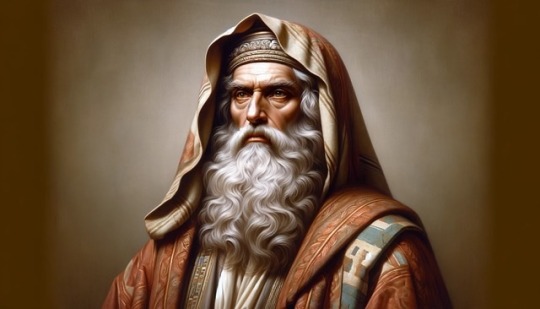
Ezekiel's Call to a Rebellious Nation
1 And he said unto me, Son of man, stand upon your feet, and I will speak unto you.
2 And the Spirit entered into me when he spoke unto me, and set me upon my feet, that I heard him that spoke unto me.
3 And he said unto me, Son of man, I send you to the children of Israel, to a rebellious nation that has rebelled against me: they and their fathers have transgressed against me, even unto this very day.
4 For they are impudent children and stubborn. I do send you unto them; and you shall say unto them, Thus says the Lord GOD.
5 And they, whether they will hear, or whether they refuse, (for they are a rebellious house,) yet shall know that there has been a prophet among them.
6 And you, son of man, be not afraid of them, neither be afraid of their words, though briers and thorns are with you, and you do dwell among scorpions: be not afraid of their words, nor be dismayed at their looks, though they be a rebellious house.
7 And you shall speak my words unto them, whether they will hear, or whether they refuse: for they are most rebellious.
8 But you, son of man, hear what I say unto you; Be not you rebellious like that rebellious house: open your mouth, and eat what I give you.
9 And when I looked, behold, a hand was sent unto me; and, lo, a scroll of a book was in it;
10 And he spread it before me; and it was written inside and outside: and there was written in it lamentations, and mourning, and woe.
— Ezekiel 2 | King James 2000 Bible (KJB2K)
The King James 2000 Bible, copyright © Doctor of Theology Robert A. Couric 2000, 2003. All rights reserved.
Cross References: 1 Samuel 8:7-8; Psalm 95:8; Isaiah 3:11; Isaiah 8:11; Isaiah 48:4; Jeremiah 1:7; Jeremiah 1:17; Jeremiah 7:27; Ezekiel 3:24; Daniel 8:18; Matthew 10:12; Luke 10:10-11; Acts 9:6; Acts 26:16; Hebrews 10:7; Revelation 5:1; Revelation 8:13; Revelation 9:3; Revelation 9:5; Revelation 9:10; Revelation 10:9
#Ezekiel#rebellious nation#Israel#Ezekiel 2#Book of Ezekiel#Old Testament#KJB2K#King James 2000 Bible
10 notes
·
View notes
Text
Current Reading List for publication and other materials etc (Alphabetised)
Just wanted to post this here given it is now fully edited together and should about right etc.
A
Alighieri, Dante (2020) The Divine Comedy. UK: Hyperborea Classica.
Apollodorus (1st-2nd century BC) The Library of Greek Mythology. Translated by Robin Hard. UK: Oxford University Press (2008).
B
Barnett, Richard (2017) Crucial Inventions, An Illustrated Treatise on the Principles & Practices of Nineteenth-Century Surgery. UK: Thames & Hudson.
Barnett, Richard (2016) The Sick Rose, or; Disease and the Art of Medical Illustration. UK: Thames & Hudson.
Bataille, Georges (1957) Eroticism. Translated by Mary Dalwood. UK: Penguin Books (2012).
Blackwood, Algernon (2019) Roaring From Further Out, Four Weird Novellas by Algernon Blackwood. UK: British Library.
Bosing, Walter (2000) The Complete Paintings of Bosch. Germany: Taschen.
Bruce, Scott G. (2018) The Penguin Book of Hell. USA: Penguin Books.
C
Chambers, Robert W. (2010) The King in Yellow. UK: Wordsworth Editions (2010).
Charles, Darwin (1871) The Descent of man. 2nd Edition. UK: Penguin Books (2004).
Cioran, Emil M. (2018) A Short History of Decay. UK: Penguin Books.
Comte De Lautreamont, Le (1978) Maldoror and Poems. Translated by Paul Knight. UK: Penguin Books.
Cooper, J.C. (1987) An Illustrated Encyclopedia of Traditional Symbols. US: Thames & Hudson.
Crowley, Aleister (2018) The Book of the Law. US: Strigoi Publishing.
D
Dalley, Stephanie (2008) Myths from Mesopotamia. UK: Oxford University Press.
Dell, Christopher (2016) Monsters, A Beastiary of the Bizarre. UK: Thames and Hudson.
Descartes, Rene (1637) Discourse on Method and the Meditations. Translated by F.E. Sutcliffe. UK: Penguin Books (1968).
Descharmes, Robert and Neret, Gilles (2006) Dali. Germany: Taschen.
Dore, Gustave (1863) The Dore Bible Illustrations. US: Dover (1974)
Dore, Gustave (1868) The Dore Illustrations for Dante’s Divine Comedy. US: Dover (1976).
E
Ebenstein, Joanna (2021) Anatomica, The Exquisite & Unsettling Art of Human Anatomy. UK: Laurence King Publishing.
Ellison, Harlan (1968) I Have No Mouth and I Must Scream. US: Open Road (2014).
Epicurus (270 BC) The Philosophy of Epicurus. Translated by George K. Strodach. US: Dover (2019).
Ernst, Max (1934) Une Semaine De Bronte. Translated by Stanley Applebaum (1976). US: Dover (1976).
F
Ficacci, Luigi (2003) Bacon. Germany: Taschen.
Foster, Michael Dylan (2015) The Book of Yokai. US: University of California.
Freud, Sigmund (1923) The Ego and the Id. US: W. W. Norton & Company (1961).
Friedrich, Ernst (1924) War Against War. UK: Spokesman (2014).
G
Gaiman, Neil (2018) Norse Mythology. UK: Bloomsbury Publishing.
Gilmore, Peter (2017) The Satanic Scriptures. US: Underworld Amusements.
Goliath (2018) Marquis De Sade, 100 erotic Illustrations. Germany: Goliath.
Goya, Francisco (1877) Great Goya Etchings, The Proverbs, The Tauromaquia and the Bulls of Bordeaux. US: Dover (2018).
Goya, Francisco (1799) Los Caprichos. Translated by Hilda Harris (1964). US: Dover (1969).
Goya, Francisco (1863) The Disasters of War. US: Dover (1967).
H
Hall, James (1996) Subjects & Symbols in Art. UK: John Murray.
Harari, Yuval Noah (2015) Sapiens, A Brief History of Humankind. UK: Penguin Random House.
Hart-Davis, Adam (2018) Schrodinger’s Cat and 49 Other Experiments that Revolutionised Physics. New Zealand: Modern Books.
Hennessy, Kathryn (2019) Signs & Symbols, An Illustrated Guide to their Origins and Meanings. UK: Penguin Random House.
Hobbes, Thomas (2008) Leviathan. UK: Oxford University Press.
Hogarth, William (1764) Engravings by Hogarth. US: Dover (1973).
Huxley, Aldous (1932) Brave New World. UK: Vintage Books (2007).
I
Ito, Junji (2011) Deserter. US: Viz Media.
Ito, Junji (2018) Frankenstein. US: Viz Media.
Ito, Junji (2015) Shiver. US: Viz Media.
Ito, Junji (2013) Uzumaki, Spiral into Horror. US: Viz Media.
Ito, Junji (2021) Venus in the Blind Spot. US: Viz Media.
J
James, Kale (2020) Flowers and Plants, An Image Archive for Artists and Designers. Vault Editions, UK: Amazon.
James, Kale (2021) Greek & Roman Mythology, An Image Archive for Artists and Designers. Vault Editions, UK: Amazon.
Joyce, James (1916) A Portrait of the Artist as a Young Man. US: Viking Compass (1974).
K
Kafka, Franz (1924) The Essential Kafka. Translated by John R. Williams. UK: Wordsworth Editions (2014).
Kant, Immanuel (1781) Critique of Pure Reason. Translated by Marcus Weigelt. UK: Penguin Books (2007).
L
Land, Nick (2021) Fanged Noumena, Collected Writings 1987-2007. 9th Edition. UK: Urbanomic, Sequence Press.
Lauricella, Michel (2020) Morpho, Fat and Skin Folds. Translated by Joan Dixon. US: Rocky Nook.
Lauricella, Michel (2020) Morpho, Hands and Feet. Translated by Joan Dixon. US: Rocky Nook.
Lauricella, Michel (2019) Morpho, Joint Forms and Muscular Functions. Translated by Joan Dixon. US: Rocky Nook.
Lauricella, Michel (2020) Morpho, Simplified Forms. Translated by Joan Dixon. US: Rocky Nook.
Lauricella, Michel (2019) Morpho, Skeleton and Bone Reference Points. Translated by Joan Dixon. US: Rocky Nook.
LaVey, Anton Szandor (1998) Satan Speaks. US: Feral House.
LaVey, Anton Szandor (1992) The Devil’s Notebook. US: Feral House.
LaVey, Anton Szandor (1969) The Satanic Bible. US: Avon Books (2005).
LaVey, Anton Szandor (1970) The Satanic Witch. US: Feral House (2003).
LaVey, Anton Szandor (1972) The Satanic Rituals. US: Avon Books.
Ligotti, Thomas (2019) The Conspiracy Against the Human Race. US: Penguin Books.
Lovecraft, H.P. (2016) The Classical Horror Stories of HP Lovecraft. UK: Oxford University Press.
M
Machen, Arthur (2019) The Great God Pan, and Other Horror Stories. UK: Oxford University Press.
Machiavelli, Niccolò (2003) The Prince. Translated by George Bull. UK: Penguin Books.
Manson, Mark (2016) The Subtle Art of Not Giving a Fuck. US: HarperCollins.
Marquis De Sade, The (2016) The 120 Days of Sodom. Translated by Will McMorran and Thomas Wynn. UK: Penguin Books.
Marquis De Sade, The (1992) Justine or The Misfortune of Virtue. Translated by John Phillips. UK: Oxford University Press (2012).
Maruo, Suehiro (2020) La Jeune Fille Aux Camelias (Shojo Tsubaki). France: Imho.
Minor, Jean-Marie le and Sick, Henri (2015) Atlas of Human Anatomy and Surgery. Germany: Taschen.
N
Nabokov, Vladimir (1959) Lolita. UK: Penguin Books (2015).
Nietzsche, Friedrich (2003) Beyond Good and Evil. Translated by Ryan J. Hollingdale. UK: Penguin Books.
Nietzsche, Friedrich (2003) The Birth of Tragedy. Translated by Shaun Whiteside. UK: Penguin Books.
Nietzsche, Friedrich (2018) The Joyous Science. Translated by R. Kevin Hill. UK: Penguin Books.
Nietzsche, Friedrich (1986) Thus Spoke Zarathustra. Translated by Ryan J. Hollingdale. UK: Penguin Books.
Norling, Ernest R. (1939) Perspective Made Easy. US: Dover (2020).
O
Orwell, George (1949) Nineteen Eighty-Four. UK: Penguin Books (2009)
Orwell, George (1950) Orwell on Truth. Compiled by David Milner. Great Britain: Penguin Books (2017).
P
Paquet, Marcel (2000) Magritte. Germany: Taschen.
Peterson, Jordan B. (2019) 12 Rules for life, An Antidote to Chaos. UK: Penguin Books.
Poe, Edgar Allan (1849) The Collected Tales and Poems of Edgar Allan Poe. UK: Wordsworth Edition (2004).
R
Rice, Boyd (2019) The Last Testament of Anton Szandor LaVey. US: Hierarchy Books.
Rousseau, Jean Jacques (1762) The Social Contract. Translated by Christopher Betts. US: Oxford University Press Inc (2008)
Rushdie, Salman (1988) The Satanic Verses. UK: Vintage Books (1998).
Russel, John (1993) Francis Bacon. UK: Thames and Hudson.
S
Sacher-Masoch, Leopold (2021) Venus in Furs. Translated by Fernanda Savage. UK. Amazon.
Sartre, Jean-Paul (1945) Existentialism is a Humanism. Translated by Carol Macomber. US: Yale Books (2007).
Sartre, Jean-Paul (1949) No Exit and Three Other Plays. Translated by Stuart Gilbert and Lionel Abel. US: Vintage International (1989).
Smith, Clark Ashton. (2014) The Dark Eidolon and Other Fantasies. US: Penguin Books.
Sontag, Susan (2003) Regarding the Pain of Others. UK: Penguin Books (2019)
Spiegelman, Art (1996) Maus. UK: Penguin Books (2003).
T
Thacker, Eugene (2011) In the Dust of the Planet, Horror of Philosophy Vol. 1. UK: Zero Books.
Thacker, Eugene (2015) Starry Speculative Corpse, Horror of Philosophy Vol. 2. UK: Zero Books.
Thacker, Eugene (2015) Tentacles Longer Than Night, Horror of Philosophy Vol. 3. UK: Zero Books.
Tzu, Sun (1910) The Art of War. Translated by Lionel Giles. UK: Pax Librorium Publishing House (2009).
V
Voltaire (2005) Candide, or Optimism. Translated by Theo Cuffe. UK: Penguin Books.
W
Walther, Ingo F. (2016) Van Gogh. Germany: Taschen.
Winslow, Valerie L. (2009) Classic Human Anatomy. US: Crown Publishing.
Y
Yamamoto, Noriko (2016) Something Wicked from Japan. Translated by Sharni Wilson. Japan: PIE International Inc.
1 note
·
View note
Text
The Catholic canon contains 73 books, and various Protestant canons contain between 66 and 81 books. All of these canons were determined by random men, each with their own agenda. Martin Luther, for example, made it clear that he was removing any books from the canon which contradicted his belief that people were only "saved through faith in Jesus' sacrifice," and not through their own actions. Some Christian canons, such as the Church of the Latter Day Saints (known as the Mormons), are even open to modern revelations - making theirs what can be called a “living” canon.
All Christian canon descends from (but is not a direct translation of) the 24 books of the Jewish Tanakh, divided and rearranged into the 39-46 books of the Greek Old Testament (thus named due to the fact that the Greek canon was decided, at the Council of Rome in the 5th century, to be the "only true canon"). The New Testament contains the four canonized gospels, the Acts of the Apostles, the 21 Epistles, and the Book of Revelation.
These books were each translated and retranslated between Biblical Hebrew, Greek, German, Latin, and then every language to which they have been translated since by individual people (such as Martin Luther, Jerome, and King James). Many books and gospels have been lost over time or declared heretical, especially from Christian canon.
It should be noted, also, that a significant portion of the Bible of today directly copies local myths which preceded it - such as the myth of Noah and the Flood. This particular myth was copied from the Greek myth of Deucalion and Pyrrha and the Flood. The Greek god-king Zeus decided to destroy all of mankind with a flood due to its moral failures, but Deucalion, son of the creator of mankind - Prometheus, and his wife, Pyrrha, crafted a floating wooden vessel and survived. The Greek myth was likely borrowed from the Epic of Gilgamesh, wherein immortal Utnapishtim is the surviving human.
The Epic of Gilgamesh survived from 2100-1100 BCE, while the Torah’s earliest books can only be traced to the 7th century BCE (700 - 601 BCE). Some Orthodox Jewish belief suggests that the Torah was written within 40 years of 1312 BCE, but there is little evidence to support this and many non-Orthodox Jewish scholars believe it was written slowly, much later, over time, by many authors. The general consensus holds that the Torah was complied between 539-333 BCE, though this too is hotly argued over.
The bible, itself, is attributed over a period of 2000 years, by ~40 authors, on three continents. One of the most prolific biblical authors, Saul / Paul, of the New Testament - wherein Christianity strictly split from Judaism - was a misogynist who had formerly been tasked with the eradication of Christianity.
Prior to orthodox Christianity, there were many other sects which were then declared “heresy,” including Gnostic Christianity, Marcionite Christianity, and several others. Orthodox Christian pastors wrote long, propagandic diatribes decrying these heretics. They claimed that their opponents ate babies, had women who regularly wore their breasts bare, had gay sex, were possessed by demons, and worshipped Satan. This echoes modern Christian conspiracies, such as QAnon, the 1980s “Satanic Panic,” and any Christian encountering one of another sect. (Catholics and Baptists, fight!)
This is not a book of trustworthy, perfect godliness, but rather a book of human creation and re-creation. The Bible is fallible, just like anything written by any other person. Not to mention, which form of Christianity is the closest to what Christianity is “supposed” to be? How does one know what to do to be “saved”? Is a living canon even functional, or has “true” Christianity been lost to the annals of time - so no one can avoid hell anymore? Does hell even exist? It's impossible to tell.
The christian god has killed at least 2 million people as numbered in the Bible. It is likely to have killed more who were simply not numbered, as women and children were not always counted as “people”. Arguably, it could be responsible for literally every human death that has ever occurred - if one believes that it is an all-powerful, all-benevolent, and all-knowing being capable of saving lives.
As the creator of all things, this god is the creator of hell, and responsible for the creation of the situation which leads to the condemnation of people to hell. The creator god could have chosen not to eternally punish any of its creations. Failing that, it could have chosen a more foolproof method of ensuring its creations would not be consigned to hellfire: not the fallible human book as described above.
Perhaps hell does not exist and was merely an idea implanted by humans. In which case, why would an all-knowing, all-powerful being allow humans to misrepresent it to others in this way? Because the fear of eternal damnation is a good recruiting tactic?
If this god is omniscient, omnipotent, omnibenevolent, sees humans as his children, and desires that all humans worship him - why would he provide as his only evidence a fallible, human-written book, which was then further edited by humans at their own discretion? Would an all-powerful, all-loving, all-knowing god not find a more certain way to ensure that his children do not go to hell? Would an all-powerful, all-loving god even have created hell? We must conclude that either god is not all-powerful, god is not all-loving, or (most likely) god does not truly exist and the bible was fabricated to ensure power for a few human men. It has since been used to enforce the power of similar men, who hide behind this fabricated god to do immoral and unethical acts.
8 notes
·
View notes
Text
Are Disney Sequels and Shows Canon?
I had some vehemently argue with me yesterday that none of them are. As though this was a fact.

Yet they wanted to argue that Greek Mythology IS canon to TLM.
They didn't have a source to cite. Just "internet facts", like 31 year old Prince Florian.
...
This misbelief stems from a misunderstanding of what "canon" means. It means multiple things.
Historically, it refers to the accepted doctrine of a religion, iirc. Such as when King James decided which books belonged in the Bible.
In this example, we have multiple canons. We have the canon of the Bible, but that can also extend to the canon of a religion. From my understanding as a non-Catholic, the Catholic Church also has a bigger "canon": including the Bible, stuff written by the popes, and writings by accepted church members (Roman martyrs, for example). I'm trying to use this example because, from my understanding, the Catholic religion is where the word came from.
We also have a direct parallel. So...

Tumblr seriously doesn't have the "is goo-ood" gif?
Anyway, the misbelief comes from the Disney Animated Canon. Or rather, the "canon" of Disney feature films. It *only* includes feature films, not direct-to-video or tv shows. Only 6 sequels have been released as feature films, so they are the only 6 included in the Animated Canon (Rescuers Down Under, Frozen 2, Ralph Breaks the Internet, Fantasia 2000, Three Caballeros, and Winnie the Pooh).
If you've watched The Princess and the Frog on DVD, you probably remember ads for the 50 animated films adverts (Tiana was 49th, fyi, not 50).
This "canon", however, is just a list of the official feature films. It is NOT trying to say that anything outside the list isn't canon. This is like the Bible Canon in the Catholic Church example. Anything outside the list just... Isn't "canon" to the Animated Feature Films list.
These people want to say that Frozen Fever (and thus Snowgies), Olaf's Frozen Adventure, Once Upon A Snowman, Toy Story 1-4... None of those are "canon"? Not to the Disney Animated Feature Films list, sure.
That list doesn't determine which Disney works are or aren't canon to their Disney stories. That isn't actually an official canon. Disney has NOT declared that, unlike Star Wars or Marvel.
So you CAN'T say that they aren't official canon. Unless, y'know, you want to be wrong. As it stands, anything released by the author (the Walt Disney company) can be considered canonical. I personally exclude comics and other licensed fan-fiction, since they are licensed instead of actually released by Walt Disney. I also exclude the musicals because they take creative license that contradicts the animated films. But that doesn't make YOU wrong for including them.
This is where our head-canons come into play. I choose to believe in a shared Disney universe, others don't. That's all fine, and neither of us are wrong. Because Disney has not declared a Canon saying otherwise.
Be creative. Have fun. Don't be an arrogant jerk. This blog is about trying to piece together Disney theories and making Disney Sims content.
And I'm all out of Sims content. Right now, anyways.
#Disney Animated Canon#Disney canon#disney films#not sims#disney analysis#disney feature films#are sequels canon
1 note
·
View note
Text
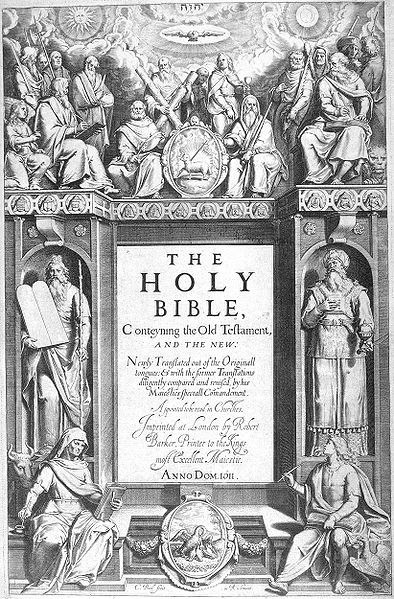
The King James Version - Early modern printing press (6/?)
On May 2, 1611 the King James Version (KJV), or the Authorized Version, was published. This translation had a big influence on English literary style. It was long accepted as the standard English Bible (until the early 20th century).
James I was the successor of Elizabeth I, whose reign imposed a high degree of uniformity upon the Church of England. In her reign, Protestantism was reinstated as the official religion after the short, Catholic reign of Mary I. When James I became king, he requested that the English Bible should be revised because existing translations “were corrupt and not answerable to the truth of the original”.
Before the introduction of the KJV, the Great Bible, authorized by Henry VIII in 1538, was relatively popular, however the editions did contain several inconsistencies. Clergy liked the later Bishops’ Bible (1568), but this version wasn’t authorized by Elizabeth I, nor gained wide acceptance. The Geneva Bible (1557) was the most popular English translation, made by English protestants living in exile during the reign of Mary I.
While a translation of a Bible might now seem very normal, but translating the Bible has been a point of heavy debate. It played an important role in the religious history of Early Modern Europe. I think it is very interesting.
Want to read more?
John O’Malley, Trent and All That, Renaming Catholicism in the Early Modern Era, Cambridge MA, 2000, Chapter II: 'Hubert Jedin and the Classic Position', pp. 46-71
François, Wim. “Vernacular Bible Reading in Late Medieval and Early Modern Europe: The «Catholic» Position Revisited.” The Catholic Historical Review, vol. 104, no. 1, 2018, pp. 23–56.
Britannica, "King James Version". Encyclopedia Britannica, 2 Feb. 2021.
Corbellini, Sabrina. “Reading, Writing, and Collecting: Cultural Dynamics and Italian Vernacular Bible Translations.” Church History and Religious Culture, vol. 93, no. 2, 2013, pp. 189–216.
#history#religious history#book history#early modern europe#printing press#james i#english history#protestantism#bible studies
10 notes
·
View notes